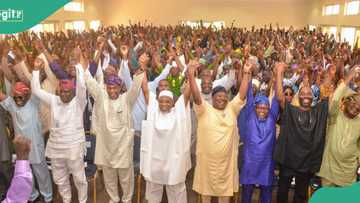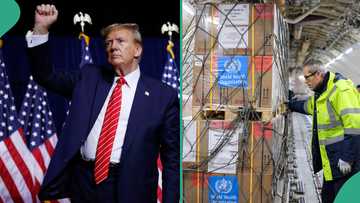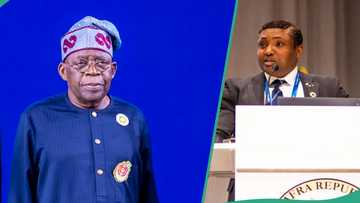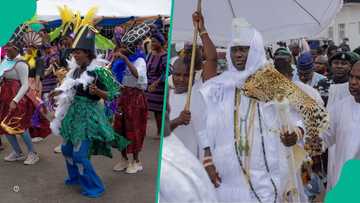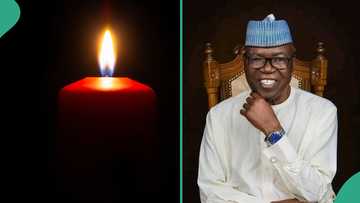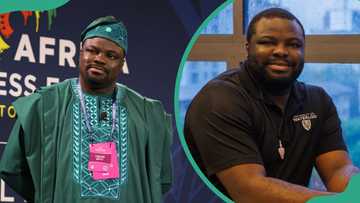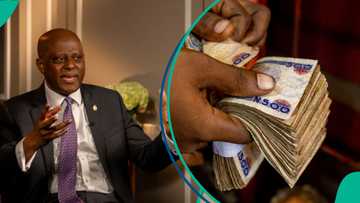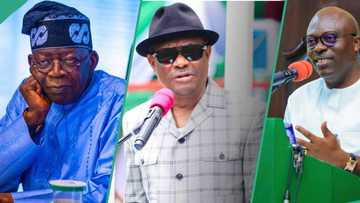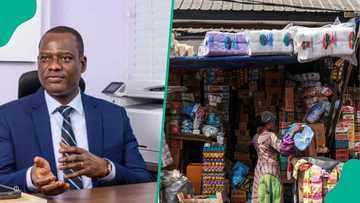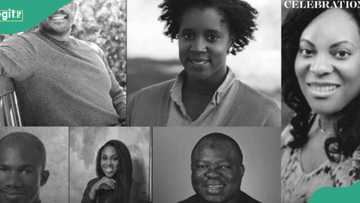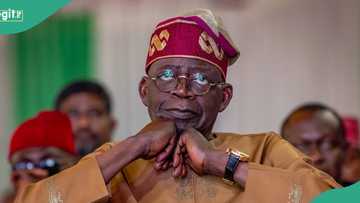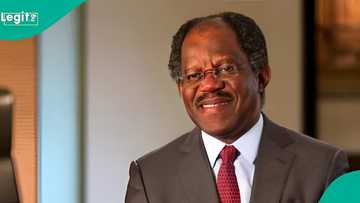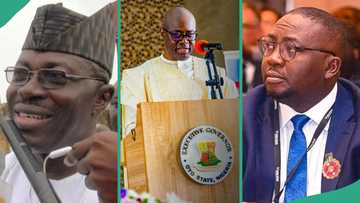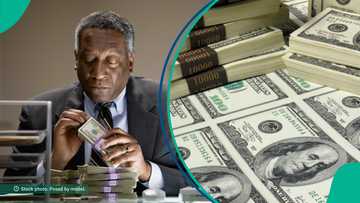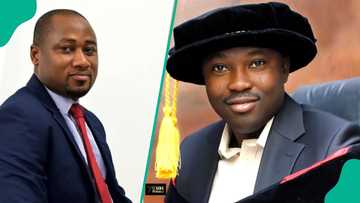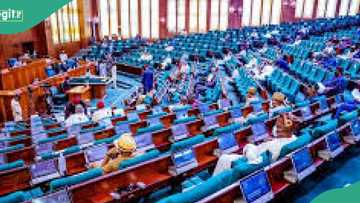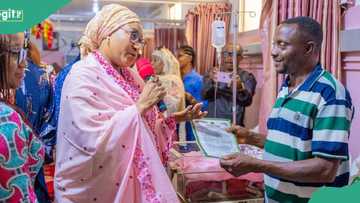Top 30 heroes and heroines in Nigeria and their contributions
What do you know about heroes and heroines in Nigeria? The West African country has a rich history of extraordinary individuals who have inspired generations through their lives and achievements. Olasupo Thompson is a history and political science lecturer at the Federal University of Agriculture, Abeokuta. He provides valuable perspectives on the impactful contributions of historical leaders across various domains, including democracy and education.
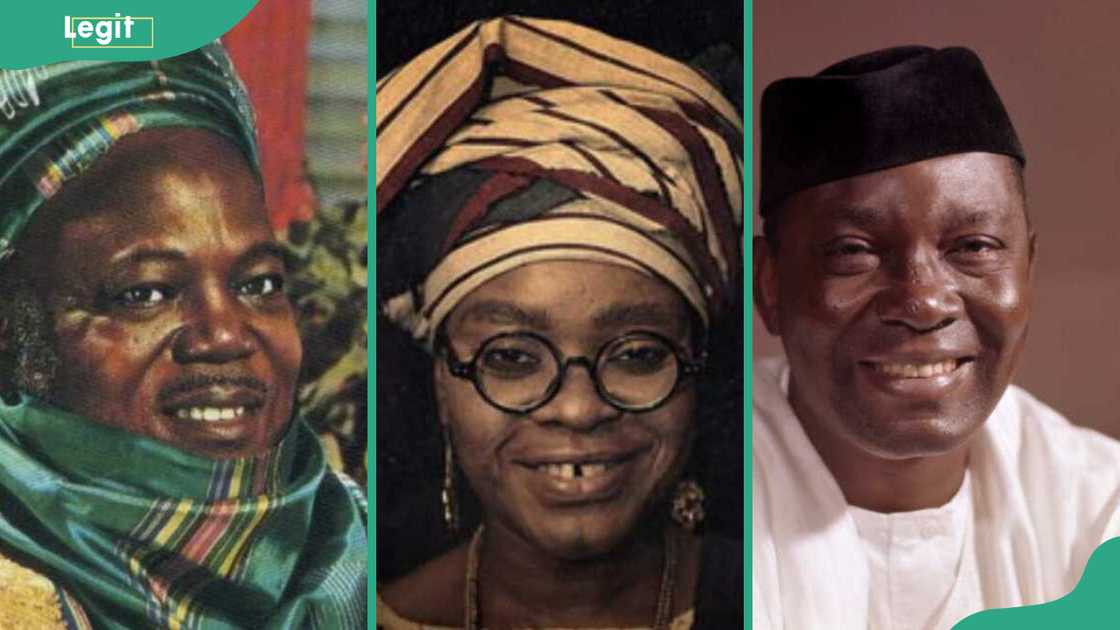
Source: Facebook
TABLE OF CONTENTS
- Who are the heroes and heroines in Nigeria?
- 30. Abraham Adesanya - Champion of democracy and Yoruba advocacy
- 29. Chief Gani Fawehinmi - A fearless defender of human rights, justice, and democracy
- 28. Chief Frank Kokori - A hero of labour and democracy for leading the 1994 oil strike against dictatorship
- 27. Chief Ayo Adebanjo - A champion for democracy, federalism, and Yoruba rights
- 26. Ayo Opadokun - A fighter for democracy and advocate for federalism
- 25. Olawale Osun - A hero of democracy and civil leadership
- 24. Ebitu Ukiwe - A hero who transformed infrastructure, strengthened national security, and championed democracy
- 23. Ndubuisi Kanu - Celebrated for his military leadership, pro-democracy activism, and advocacy for democratic reforms
- 22. Clement Nwankwo - A valiant defender of human rights and democracy
- 21. Pa Alfred Rewane - A hero at the forefront of Nigeria's struggle for democracy and development
- 20. Chioma Ajunwa - Nigeria's first Olympic Gold Medalist and trailblazer for African women in field events
- 19. Agbani Darego - A trailblazing hero for African women, first black African Miss World and influential fashion entrepreneur
- 18. Florence Nwapa - Pioneering African female writer and advocate for refugees and orphans
- 17. Ngozi Okonjo-Iweala - A trailblazing economist and the first African woman to lead the WTO
- 16. Dora Akunyili - Bravely fought against fake medications and endangered her life for public safety
- 15. General Yakubu Dan-Yumma Gowon - A hero for his leadership and service to Nigeria
- 14. General Murtala Ramat Mohammed - Celebrated for his leadership in Nigeria's counter-coup, state expansion, and public reforms
- 13. Shehu Usman Aliyu Shagari - A trailblazer in political leadership, national development, and education
- 12. Abubakar Tafawa Balewa - A champion of Northern Nigeria's rights and Nigeria's first Prime Minister
- 11. General Sani Abacha - A leader who strengthened Nigeria's economy
- 10. Hajiya Gambo Sawaba - A political trailblazer and women's advocate in Nigeria's struggle for independence
- 9. Chief Olusegun Obasanjo - A hero for Pan-African unity, democracy, and anti-corruption efforts
- 8. Chief Anthony Enahoro - Celebrated for his advocacy for democracy, anti-colonialism, and Nigeria's independence movement
- 7. Margaret Ekpo - A pioneer of women's rights and political leadership in Nigeria
- 6. Chief Obafemi Awolowo - A key leader in Nigeria's Independence and a strong opponent of military rule
- 5. Kudirat Abiola - A heroine of Nigeria's democracy movement and advocate for freedom
- 4. Ahmadu Bello - A champion of Nigeria's independence with a lasting legacy
- 3. Herbert Macaulay - Pioneer of Nigerian nationalism and founder of key political movements
- 2. Funmilayo Ransome Kuti - A heroine for women's empowerment, human rights, and revolutionary leadership
- 1. Dr. Nnamdi Azikiwe - Champion of African nationalism and Nigeria's first President
- Key leaders in Nigeria's economic growth and stability
- A list of five achievements of heroes and heroines in Nigeria
- Past leaders who contributed to Nigeria's growth
- Who fought for Nigeria's independence?
- Who is an early hero in Nigeria?
- Who fought for Nigeria?
- Who are the heroes in Lagos State?
- Top 10 heroines in Nigeria and their names
- Who are the present heroines in Nigeria?
- Who is the national hero of Nigeria?
- This list includes founding leaders who have made significant contributions such as Dr. Nnamdi Azikiwe.
- It also highlights women who pioneered women's rights like Margaret Ekpo, Funmilayo Ransome Kuti and Hajiya Gambo Sawaba.
- Pro-democracy activists who resisted military rule such as Abraham Adesanya and Kudirat Abiola are also highlighted.
- Human rights activists like Clement Nwankwo are also included.
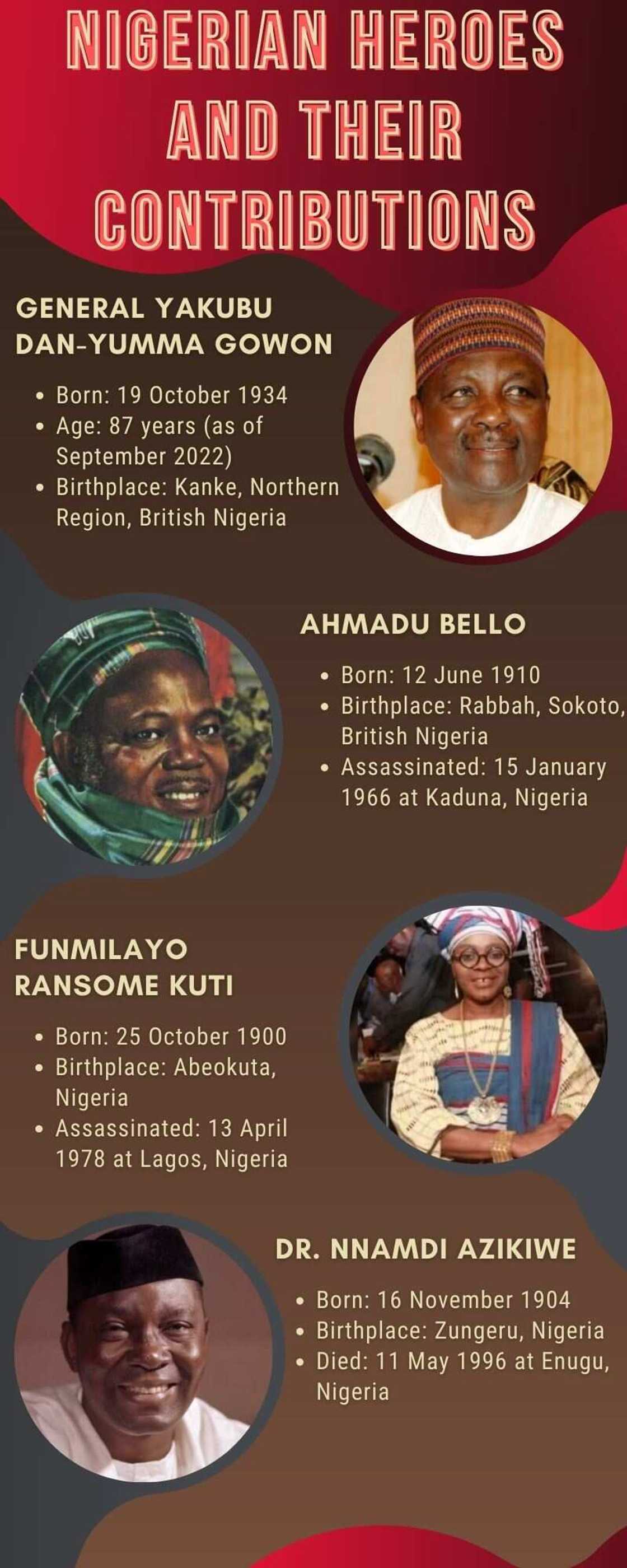
Source: Original
Who are the heroes and heroines in Nigeria?
These are pioneers who left a huge mark on Nigeria's landscape. They fought for freedom, democracy and human rights.
No | Name | Profession |
1. | Nnamdi Azikiwe | Politician and revolutionist |
2. | Fanmiryo Payment Kuti | Educator and political activist |
3. | Herbert Heelas Macaulay | Nationalist, politician, surveyor |
4. | Mr. Ahmadu Bello | Politician |
5. | Kudirat Abiola | Pro-democracy campaigner |
6. | Secretary Obafemi Awolowo | Politician and nationalist |
7. | Margaret Ekpo | Women's rights activist and social mobiliser |
8. | Anthony Enahoro | Anti-colonial and pro-democracy activist |
9. | Gen Obasanjo | Politician |
10. | Hajiya Gambo Sawaba | Women's rights activist, politician |
The world honours heroes and heroines in Nigeria for their painstaking work and leadership qualities. They fought for independence, human rights, democracy, and justice for their people.
Others inspired talents and promoted education, quality health care, and financial growth. Here is a list of the top 30 heroes and heroines in Nigeria and their contributions to the country. Note that the list is in no particular order.
30. Abraham Adesanya - Champion of democracy and Yoruba advocacy
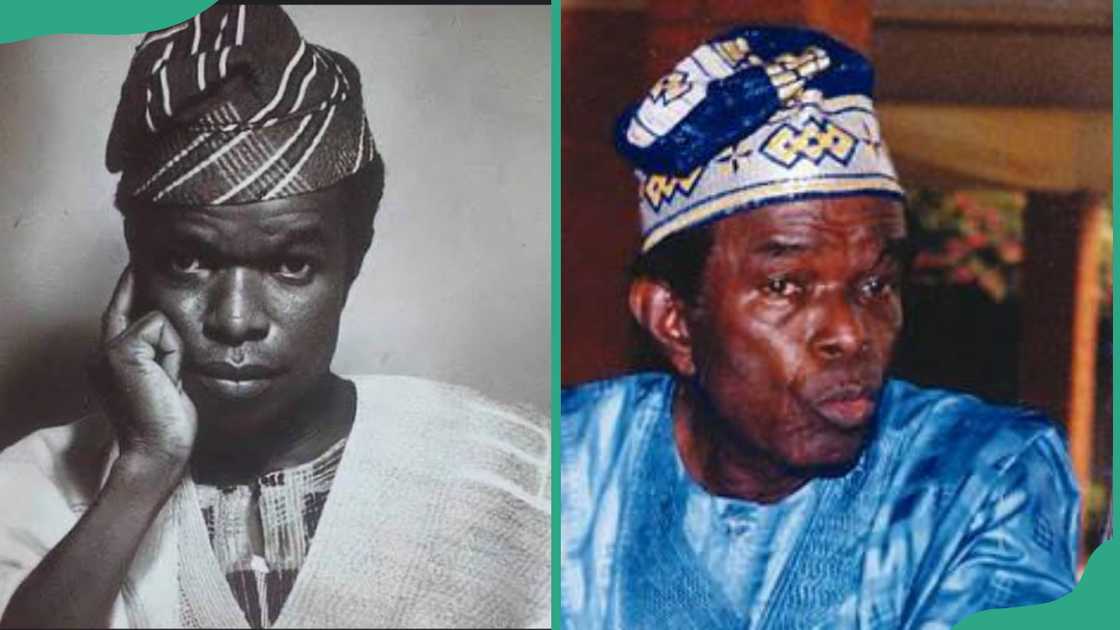
Source: Facebook
- Born: 24 July 1922
- Birthplace: Ijebu Igbo, Southern Region, British Nigeria
- Date of death: 27 April 2008
- Age at death: 85
- Spouse: Rosannah Arinola Adesanya
- Career: Politician, lawyer, activist, welfarist, and liberal progressive
Chief Abraham Aderibigbe Adesanya was a Nigerian politician, lawyer, and activist. He is recognised for his work in championing democracy. Adesanya was also a leader of the Afenifere group, which focuses on Yoruba interests.
He was one of the founders of the National Democratic Coalition (NADECO), which fought for the return of democracy in Nigeria. His work with NADECO contributed to the country’s return to democratic rule in 1999.
29. Chief Gani Fawehinmi - A fearless defender of human rights, justice, and democracy
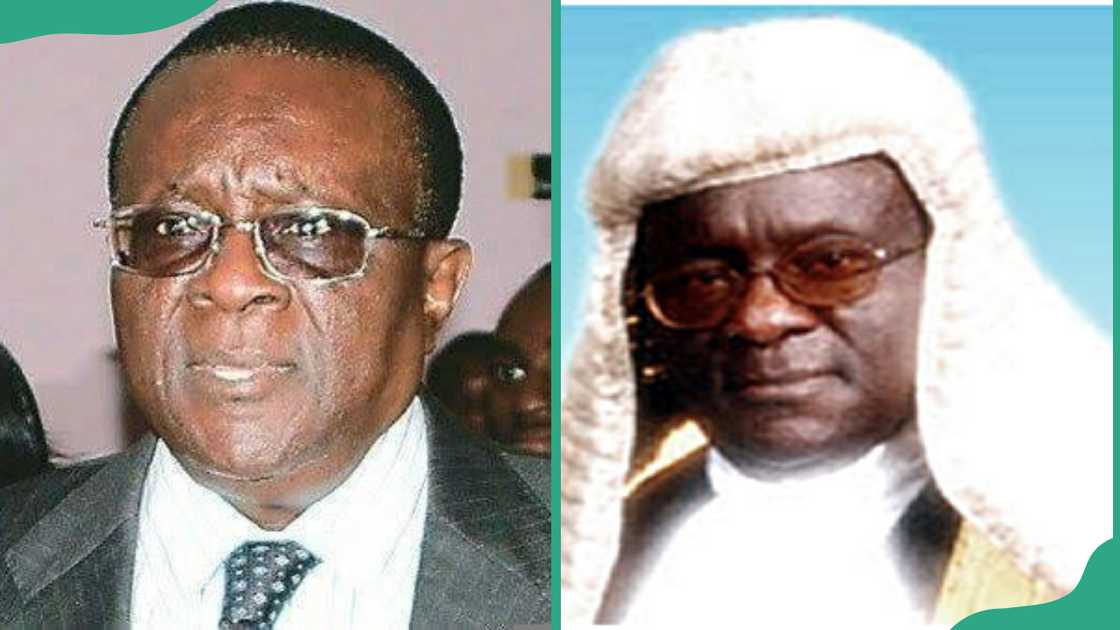
Source: Facebook
- Born: 22 April 1938
- Birthplace: Ondo State, Nigeria
- Date of death: 5 September 2009
- Age at death: 71 years old as of 2025
- Spouse: Ganiyat Fawehinmi
- Career: Gani Fawehinmi was a prominent Nigerian lawyer, human rights activist, and politician
Chief Gani Fawehinmi was a Nigerian lawyer, activist, and politician known for his strong fight for human rights and justice. He used the law to challenge oppressive governments, particularly during military regimes. He fought for democracy and helped free political prisoners.
Fawehinmi stood firm against dictators like Sani Abacha and Muhammadu Buhari, defending the rights of the oppressed through his legal work. Beyond the courtroom, Fawehinmi was a vocal critic of government corruption and human rights abuses.
28. Chief Frank Kokori - A hero of labour and democracy for leading the 1994 oil strike against dictatorship
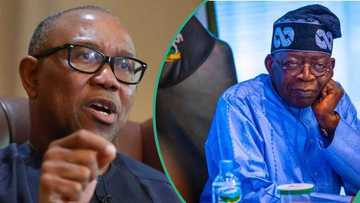
Read also
"Nigeria is a crime scene": Peter Obi highlights systemic corruption in new emotional speech
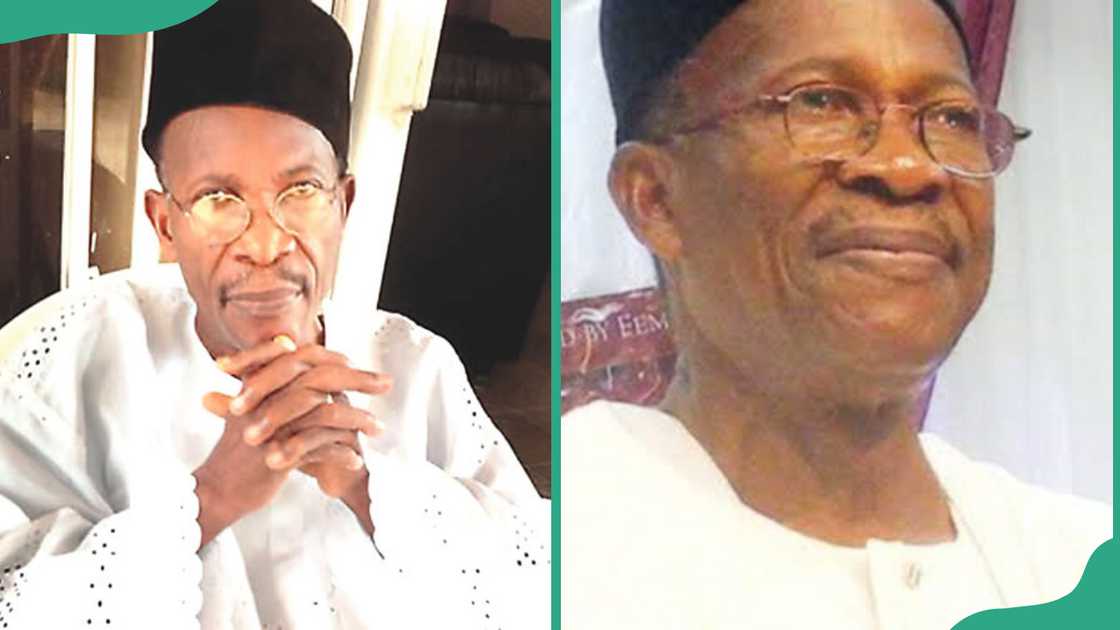
Source: Facebook
- Born: 7 December 1944
- Birthplace: Kokori, Delta State
- Date of death: 7 December 2023
- Age at death: 79 years old
- Spouse: Mrs Esther Kokori
- Career: Prominent Nigerian trade unionist and politician
Chief Frank Kokori became a key figure in Nigeria’s labour movement as the General Secretary of the National Union of Petroleum and Natural Gas Workers (NUPENG). Kokori led a major strike in 1994 against the military regime of General Sani Abacha.
This strike, which halted oil production, was a powerful stand against the annulment of the 12 June 1993 election. Frank Kokori’s contributions to Nigeria’s labour rights and democratic struggles have earned him the status of a national hero.
27. Chief Ayo Adebanjo - A champion for democracy, federalism, and Yoruba rights
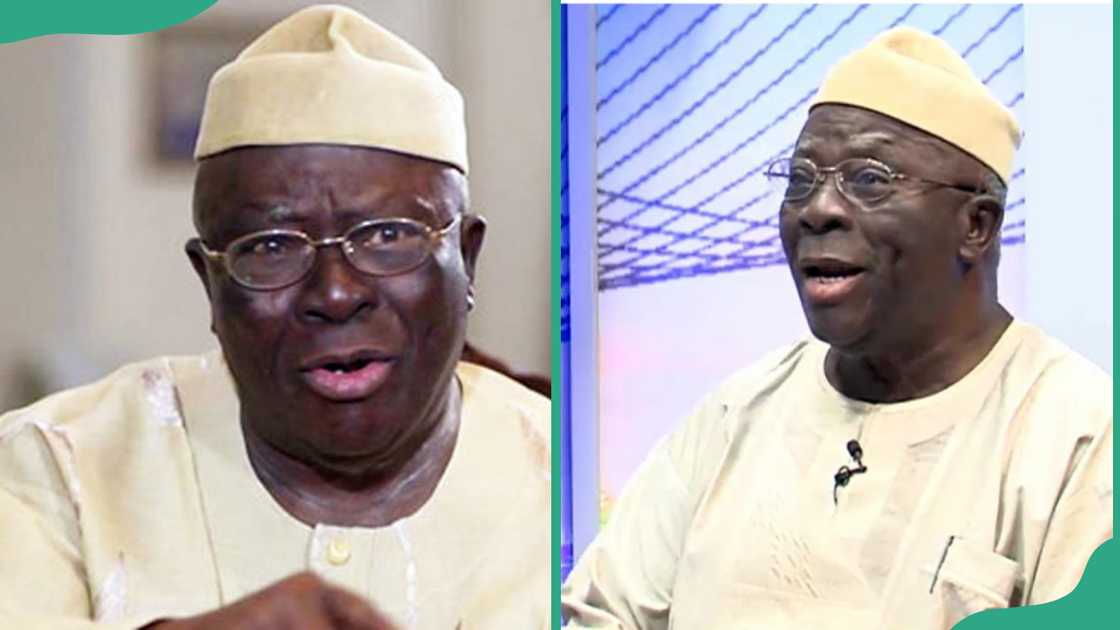
Source: Facebook
- Born: 10 April 1928
- Birthplace: Ijebu-Igbo, Ogun State
- Age: 97 years old as of 2025
- Spouse: Mrs. Christiana Adebanjo.
- Career: Politician, elder statesman, and a key figure in Yoruba leadership
Chief Ayo Adebanjo is revered for his dedication to democracy and regional autonomy. He was a leader of Afenifere, fighting for the rights of the Yoruba people. He also advocated for a federal system that protects all ethnic groups in Nigeria.
He has spent many years opposing military rule and corruption, standing up for good governance and democracy. Adebanjo has also promoted peace, unity, and justice in Nigeria. His commitment to restructuring Nigeria to ensure true federalism has earned him respect.
26. Ayo Opadokun - A fighter for democracy and advocate for federalism
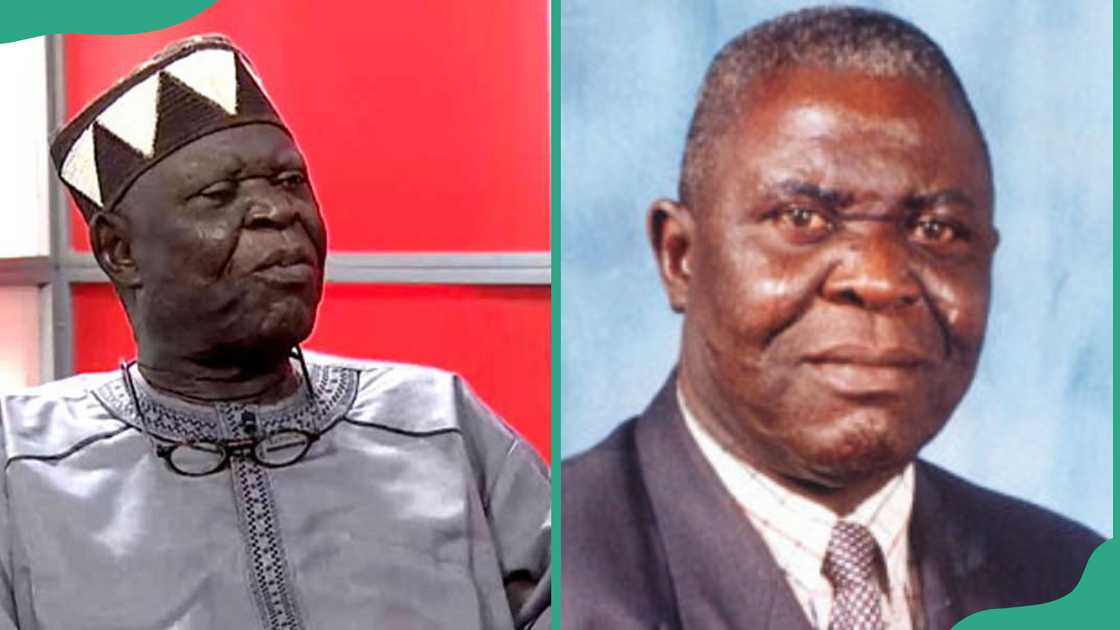
Source: Twitter
- Born: 26 August 1948
- Birthplace: Kwara State
- Age: 77 years old as of 2025
- Spouse: Not publicly known
- Career: Lawyer, Pro-democracy activist and Secretary-General of the National Democratic Coalition (NADECO)
A household name in Nigeria, the elder Opadokun is considered a hero. Chief Ayo Opadokun is a respected Nigerian lawyer and pro-democracy activist. As Secretary-General of NADECO, he stood against military rule and fought to restore democracy.
Chief Opadokun is also a strong advocate for true federalism. He calls for a return to the 1960 Independence Constitution. He has criticized poor governance and policies harming education and development.
25. Olawale Osun - A hero of democracy and civil leadership
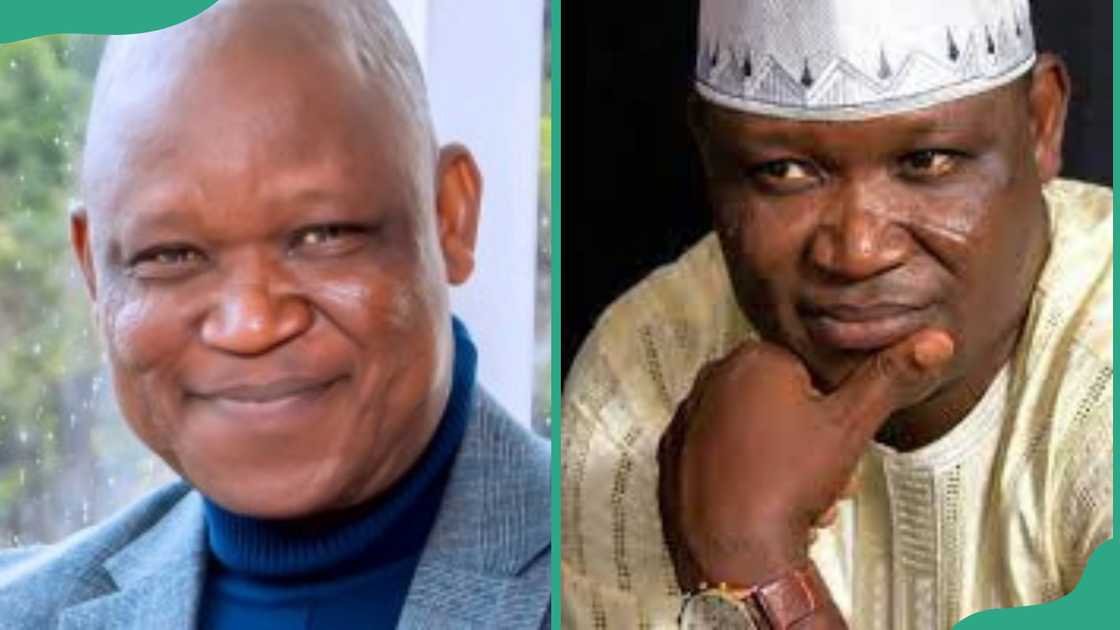
Source: Facebook
- Born: 26 March 1950
- Birthplace: Ijebu-Mushin, Ogun State
- Age: 75 years old as of 2025
- Spouse: Anthonia Funlola Oshun
- Career: Civil service, entrepreneur and political leader
Among the heroes and heroines in Nigeria, Olawale Oshun stands tall. He began his career in the Federal Civil Service, rising to the rank of Undersecretary before retiring in 1985. He later founded Joint Services Limited, focusing on small industries and manufacturing.
He played a key role in Chief M.K.O. Abiola's campaign during the 1993 presidential election. Olawale Oshun co-founded the National Democratic Coalition (NADECO), which opposed military rule and pushed for civilian governance.
24. Ebitu Ukiwe - A hero who transformed infrastructure, strengthened national security, and championed democracy
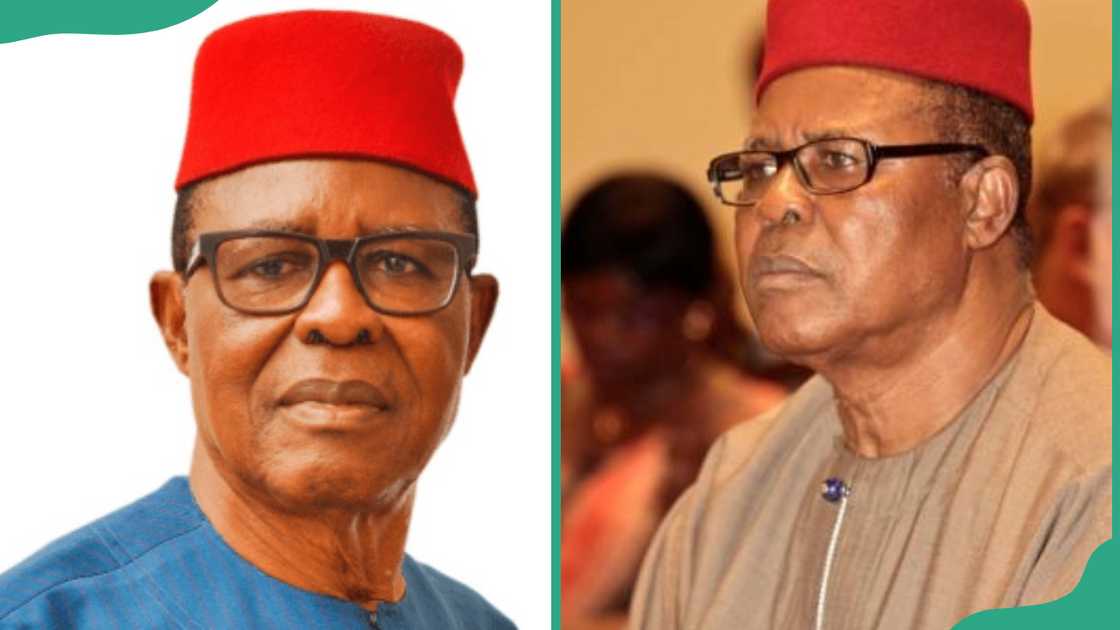
Source: Facebook
- Born: 26 October 1940
- Birthplace: Abiriba, Abia State
- Age: 84 years old as of 2025
- Spouse: Amina Ukiwe
- Career: Military officer and pro-democracy fighter
Ebitu Ukiwe is a Nigerian hero known for his dedicated service in the military and government. Born in Abiriba, Abia State, he joined the Nigerian Navy in 1960 and quickly rose through the ranks. Ebitu Ukiwe served as a military governor in Niger and Lagos States, where he improved infrastructure and promoted growth.
As Chief of General Staff under General Ibrahim Babangida, he played a key role in shaping the nation’s security and political landscape. After retiring from the Navy, Ukiwe became involved in pro-democracy efforts and business.
23. Ndubuisi Kanu - Celebrated for his military leadership, pro-democracy activism, and advocacy for democratic reforms
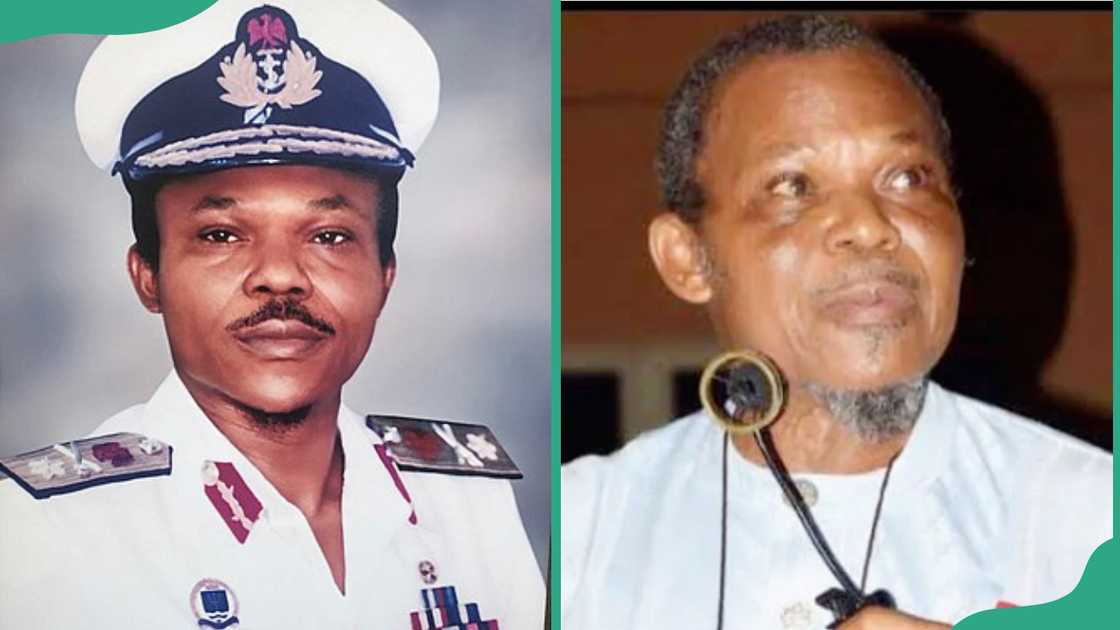
Source: Facebook
- Born: 3 November 1943
- Birthplace: Ovim village in Isuikwuato, Abia State, Nigeria.
- Date of Death: 13 January 2021
- Age at Death: 77 years
- Spouse: Chief Mrs. Gladys Kanu (née Uzodike)
- Career: Military officer and pro-democracy activist
Rear Admiral Ndubuisi Godwin Kanu was a distinguished military officer and pro-democracy activist. He joined the Nigerian Navy in 1962 and rose through the ranks, serving in various military capacities, including during the Nigerian Civil War.
Kanu served as the military governor of Imo State (1976-1977) and Lagos State (1977-1978), where his leadership led to significant infrastructural developments.
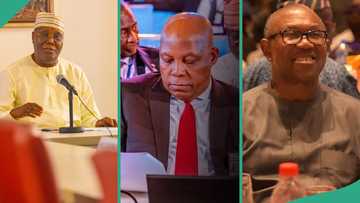
Read also
Strengthening democracy: Shettima, Abdulsalam, Atiku, Obi to discuss electoral malpractices, others
He became a key member of the National Democratic Coalition (NADECO), advocating for the annulled June 12, 1993, election and pushing for democratic reforms.
22. Clement Nwankwo - A valiant defender of human rights and democracy
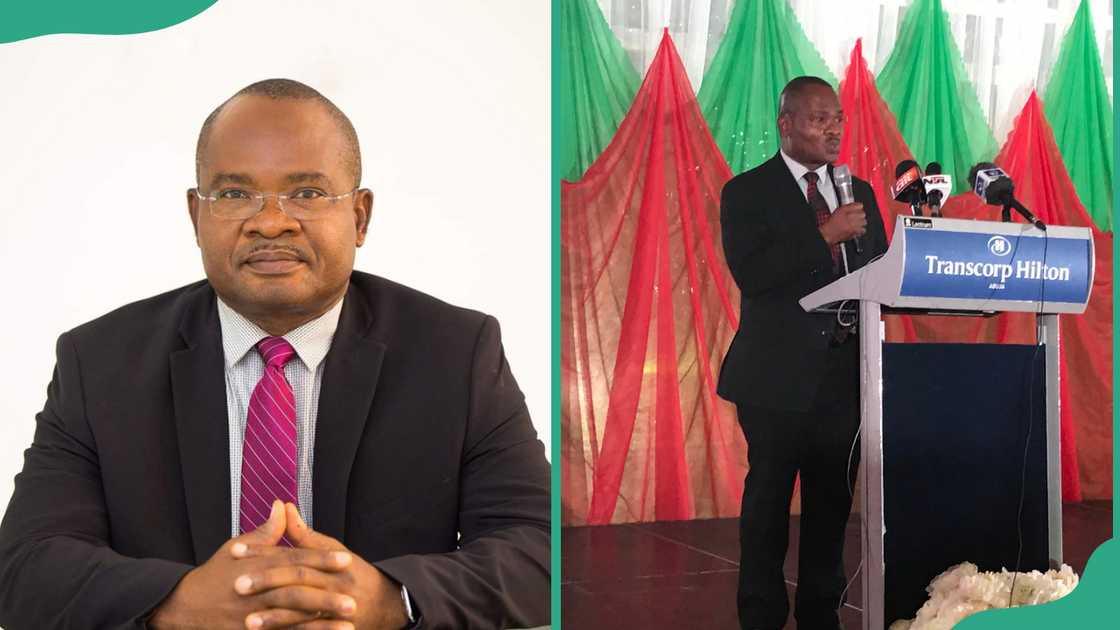
Source: Twitter
- Born: 9 May 1962
- Birthplace: Lagos, Lagos State
- Age: 63 years old as of 2025
- Spouse: Unknown
- Career: Lawyer and human rights activist
Clement Okechukwu Nwankwo was the first Nigerian to establish a human rights organisation, co-founding the Civil Liberties Organisation (CLO) in 1987. Nwankwo later founded the Constitutional Rights Project (CRP) in 1990 which became a strong voice against military rule in the 1990s.
He also played a key role in Nigeria’s transition to civilian rule founding the Transition Monitoring Group (TMG) in 1998. He opposed the attempt to extend President Olusegun Obasanjo’s tenure in 2006 and has consistently spoken against military involvement in elections.
21. Pa Alfred Rewane - A hero at the forefront of Nigeria's struggle for democracy and development
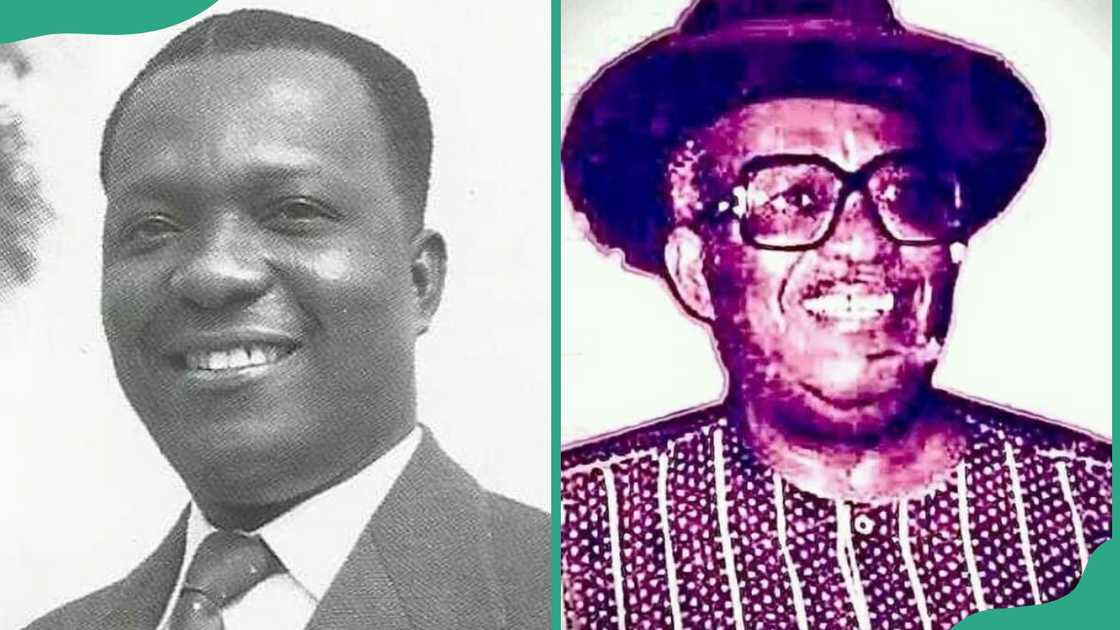
Source: Facebook
- Born: 24 August 1916
- Birthplace: Warri, Nigeria
- Date of death: 6 October 1995
- Age at death: 79 years
- Career: Businessman and civil rights leader
The late Alfred Rewane was a Nigerian businessman and one of the heroes and heroines in Nigeria for a reason. He celebrated as the financier of NADECO and was a close associate of Obafemi Awolowo.
In the 1990s, the businessman's Lagos residence was the primary venue of the political meetings that led to the formation of NADECO.
During the pre-independence era in Nigeria, Alfred was affiliated with the Action Group. He became the chairman of the Western Nigeria Development Company.
20. Chioma Ajunwa - Nigeria's first Olympic Gold Medalist and trailblazer for African women in field events
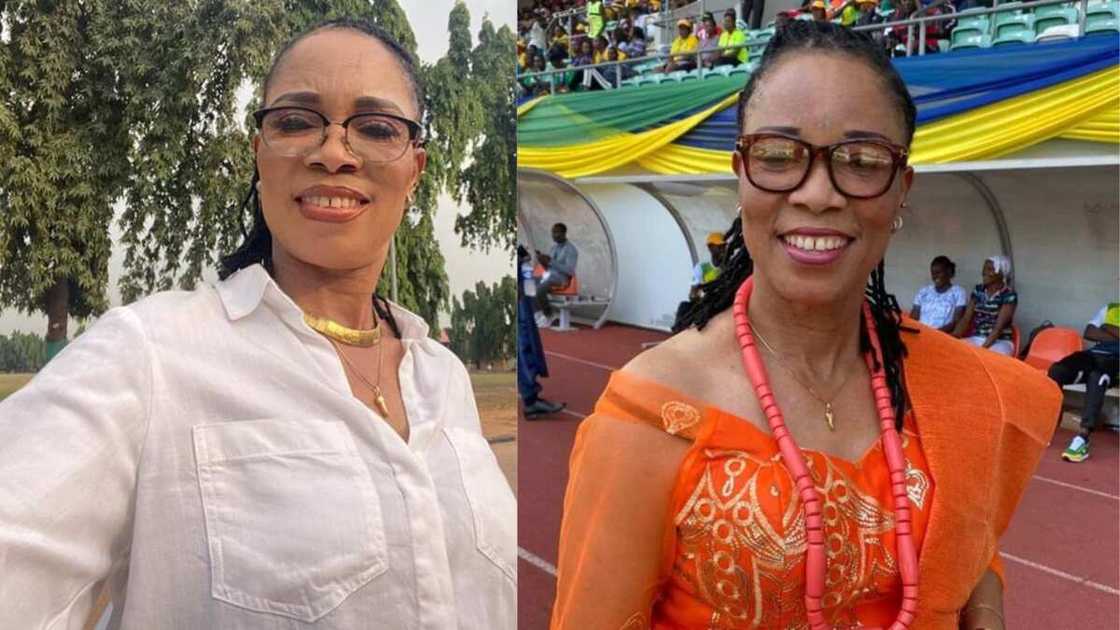
Source: Instagram
- Born: 25 December 1970
- Age: 55 years as of 2025
- Birthplace: Imo, Nigeria
- Spouse: Howell Chidera
- Career: Nigerian former track and field athlete
Nigerian former track and field athlete Chioma Ajunwa-Opara is among the top 10 heroines in Nigeria. She was the first Nigerian to win gold at the 1996 Summer Olympics in Atlanta. She is among present-day heroes and heroines in Nigeria.
She is also honoured as the first black African woman to win an Olympic gold medal in a field event. Chioma Ajunwa-Opara was also a footballer. She has three children named Joshua, Caleb, and Rose.
19. Agbani Darego - A trailblazing hero for African women, first black African Miss World and influential fashion entrepreneur

Source: Instagram
- Born: 22 December 1982
- Age: 42 years (as of January 2025)
- Birthplace: Abonnema, Nigeria
- Spouse: Ishaya Danjuma
- Career: Nigerian model and beauty queen
Chief Ibiagbanidokibubo Asenite 'Agbani' Darego is a Nigerian model and beauty queen. She was crowned Miss World in 2001. Agbani Darego was the first black African to win the Miss World title and her name makes it to the list of the top five heroines in Nigeria.
She owns a style and fashion reality show called STYLOGENIC and is the CEO of Demin Range. Agbani has been a judge of beauty pageants, including Miss World 2014, Elite Model Look Nigeria 2012-2014, and Mr. Scotland & Miss England 2002. She struck a deal with Donald Trump's management to establish links with modelling agencies.
18. Florence Nwapa - Pioneering African female writer and advocate for refugees and orphans
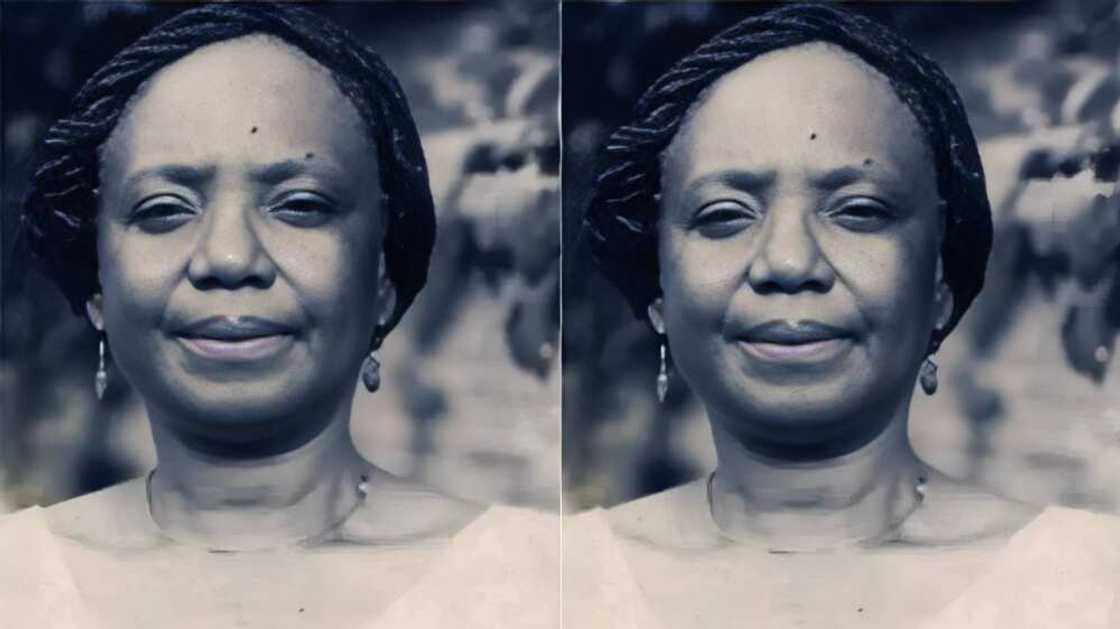
Source: Facebook
- Born: 13 January 1931
- Date of death: 16 October 1993
- Age at death: 62 years
- Birthplace: Oguta, Nigeria
- Spouse: Gogo Nwakuche
- Career: Nigerian author
Florence Nwanzuruahu Nkiru Nwapa does not miss the list of the names of past heroes in Nigeria. Nicknamed the mother of modern African Literature, she spearheaded a generation of African female writers.
Florence Nwapa was the first African woman novelist to be published in the English language. She dedicated her time to helping refugees and orphans after the Nigerian civil war that killed millions of Nigerians and Biafrans.
In 1970, Nwapa established Tana Press. Her books spoke against the patriarchal society. She died of pneumonia in 1993 at 62.
17. Ngozi Okonjo-Iweala - A trailblazing economist and the first African woman to lead the WTO
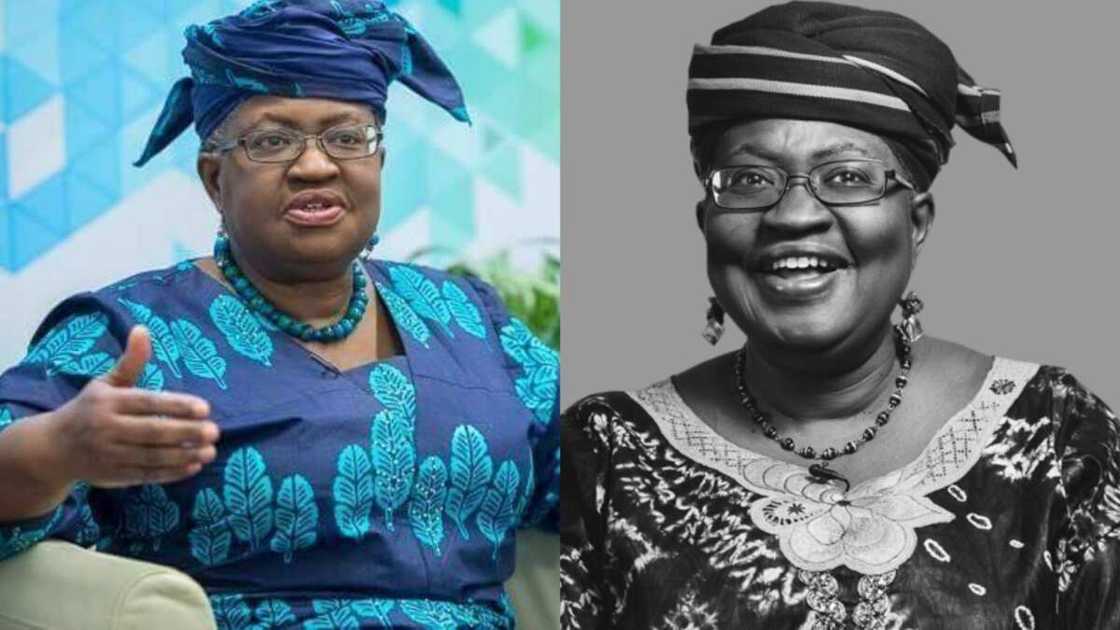
Source: Facebook
- Born: 13 June 1954
- Age: 70 years (as of January 2025)
- Birthplace: Ogwashi-Ukwu, Nigeria
- Spouse: Ikemba Iweala
- Career: Economist
Nigerian economist Ngozi Okonjo-Iweala is among the present heroines in Nigeria. She was Nigeria's Minister of Finance twice. Ngozi was instrumental in writing off Nigeria's foreign debt during her first time as Finance Minister.
She has been the Director-General of the World Trade Organisation since March 2021. Ngozi is the first woman and African to lead the World Trade Organization as Director-General.
16. Dora Akunyili - Bravely fought against fake medications and endangered her life for public safety
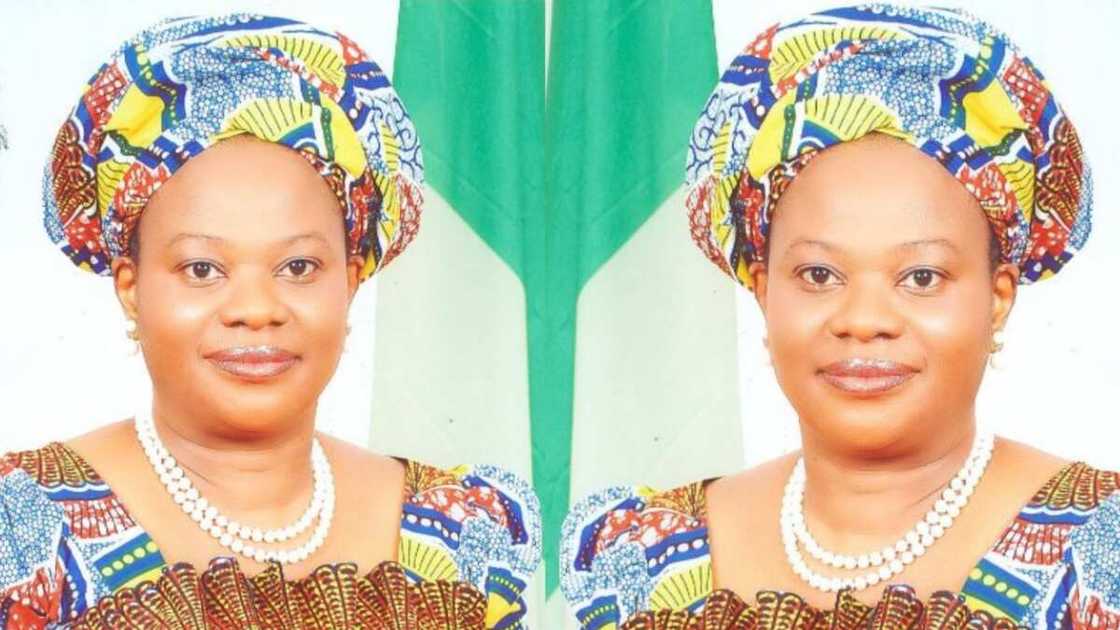
Source: Facebook
- Born: 14 July 1954
- Birthplace: Agulu, Nigeria
- Date of death: 7 June 2014
- Age at death: 59 years
- Spouse: J.C. Akunyili
- Career: Pharmacist and governmental administrator
Professor Dora Nkem Akunyili OFR fought against sub-standard and fake medications, while at the National Agency for Food and Drug Administration and Control (NAFDAC). She was the Director-General of NAFDAC from 2001 to 2008.
Akunyili revealed threats she and her family faced during her work and provided information about people she targeted who threatened to destroy NAFDAC facilities. Dora Akunyili died at a specialist cancer hospital in India on 7 June 2014 after a two-year battle with uterine cancer.
15. General Yakubu Dan-Yumma Gowon - A hero for his leadership and service to Nigeria
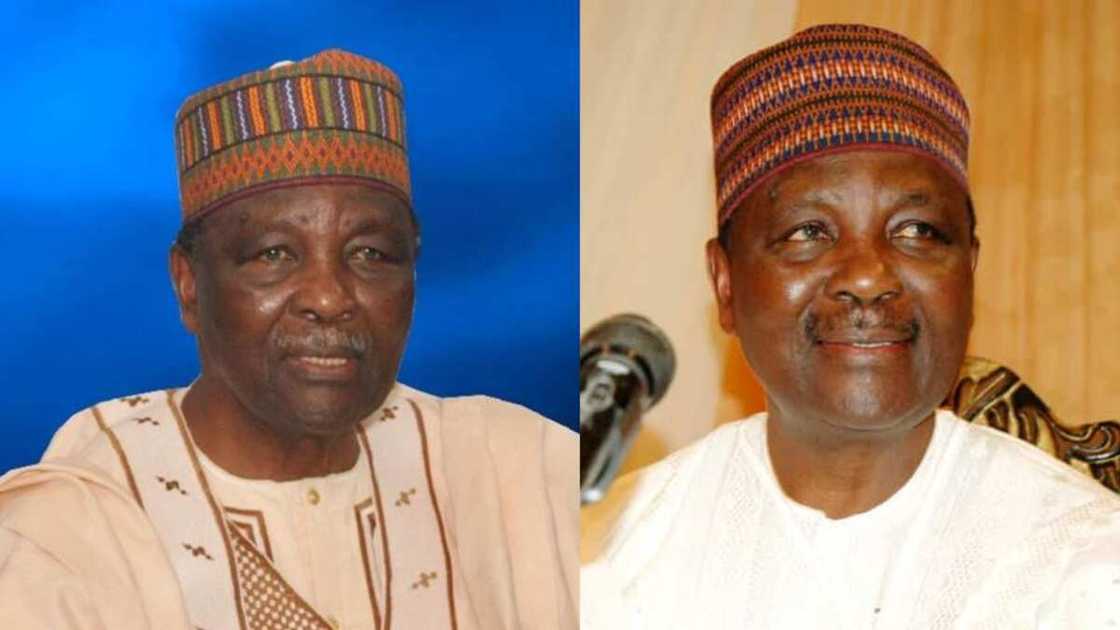
Source: UGC
- Born: 19 October 1934
- Age: 90 years (as of January 2025)
- Birthplace: Kanke, Northern Region, British Nigeria
- Spouse: Victoria Gowon
- Career: Military leader
Yakubu Dan-Yumma 'Jack' Gowon is among the great heroes and heroines in Nigeria. He was born in a small village of the Ngas tribe (Plateau State). He spent his childhood in Zaria and got higher education at Warwick University in the UK.
General Yakubu Gowon joined the Nigerian army in 1954 and received a Second Lieutenant position after training. His accomplishments as Nigeria's foreign minister received plenty of praise. Yakubu headed the Nigerian Federal Military Government from 1966 to 1975.
14. General Murtala Ramat Mohammed - Celebrated for his leadership in Nigeria's counter-coup, state expansion, and public reforms
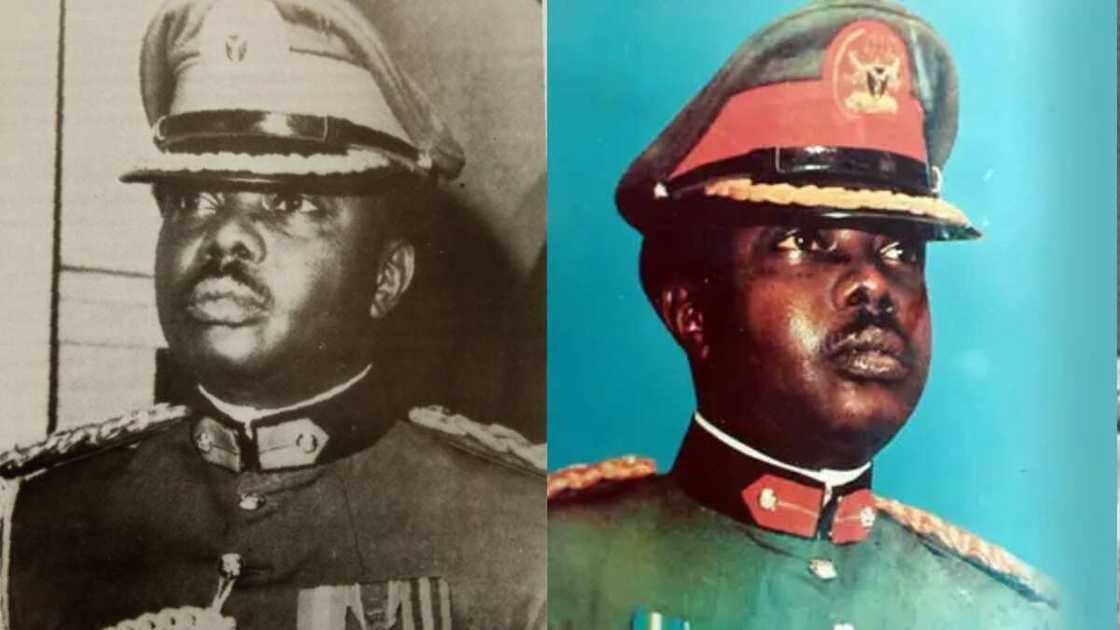
Source: UGC
- Born: 8 November 1938
- Birthplace: Kano, Northern Region, British Nigeria
- Date of death: 13 February 1976
- Age at death: 37 years
- Spouse: Ajoke Muhammed
- Career: Military officer
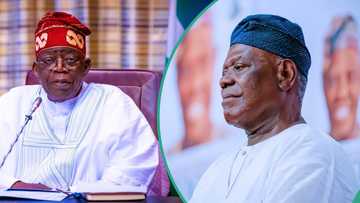
Read also
Tinubu greets Bisi Akande as first APC national chairman clocks 86: “You’ve been my close ally”
The list of celebrated Nigerian nationalists and their contributions is incomplete without General Murtala Ramat Muhammed. People called the military officer "Monty of the Midwest," and his portrait is on the N20 banknote, and an airport in Lagos was also named after him.
The Nigerian general led the 1966 counter-coup that overthrew Johnson Aguiyi-Ironsi's military regime. He became a Communications Commissioner in 1974.
He increased the number of states in Nigeria from twelve to nineteen in 1967 and established a Commission of Public Complaints during his tenure.
13. Shehu Usman Aliyu Shagari - A trailblazer in political leadership, national development, and education
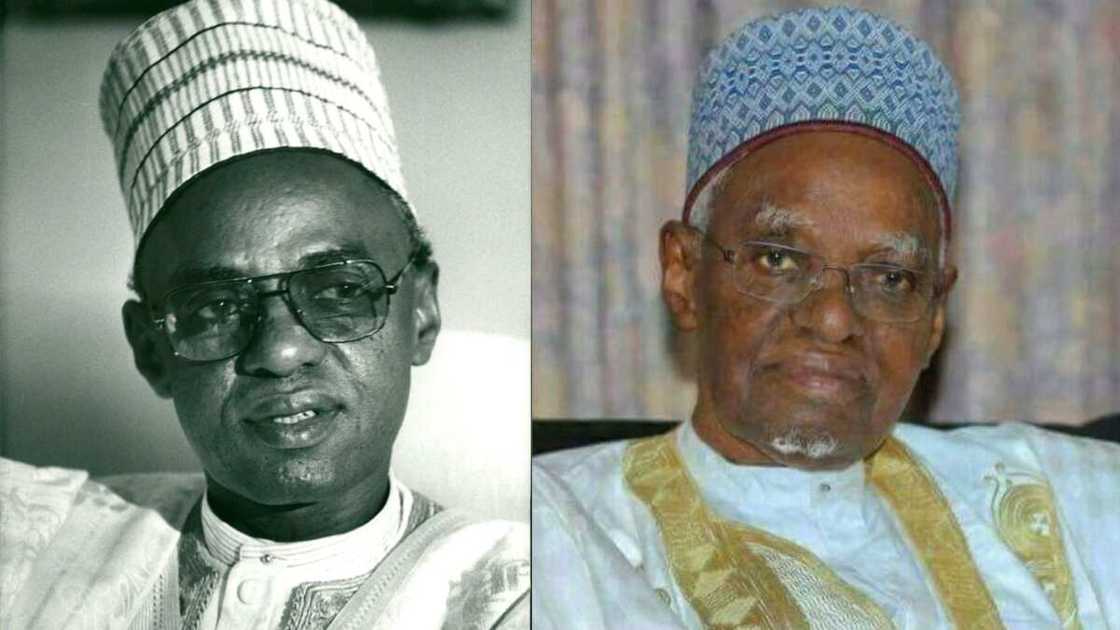
Source: UGC
- Born: 25 February 1925
- Birthplace: Shagari, Nigeria
- Date of death: 28 December 2018
- Age at death: 93 years
- Spouses: Amina Shagari, Hadiza Dawaiya, and Hadiza Shagari
- Career: Politician
Shehu Usman Aliyu Shagari was titled Turakin Sokoto in 1962. He briefly worked as a teacher before joining politics in 1951. Usman was elected into the House of Representatives in 1954.
He held several powerful cabinet positions between 1958 to 1975. Politician Shehu Shagari was the Federal Minister of Finance, Budget, and National Planning (1971–1975) and the Federal Ministry of Interior (1962–1965).
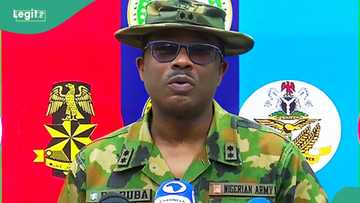
Read also
Insecurity: Concerns as Defence HQ uncovers fresh activities of foreign terrorists, details emerge
The politician also served as the President of Nigeria (1979–1983). He made industry, housing and transportation, agriculture, and education his major goals during his administration.
12. Abubakar Tafawa Balewa - A champion of Northern Nigeria's rights and Nigeria's first Prime Minister
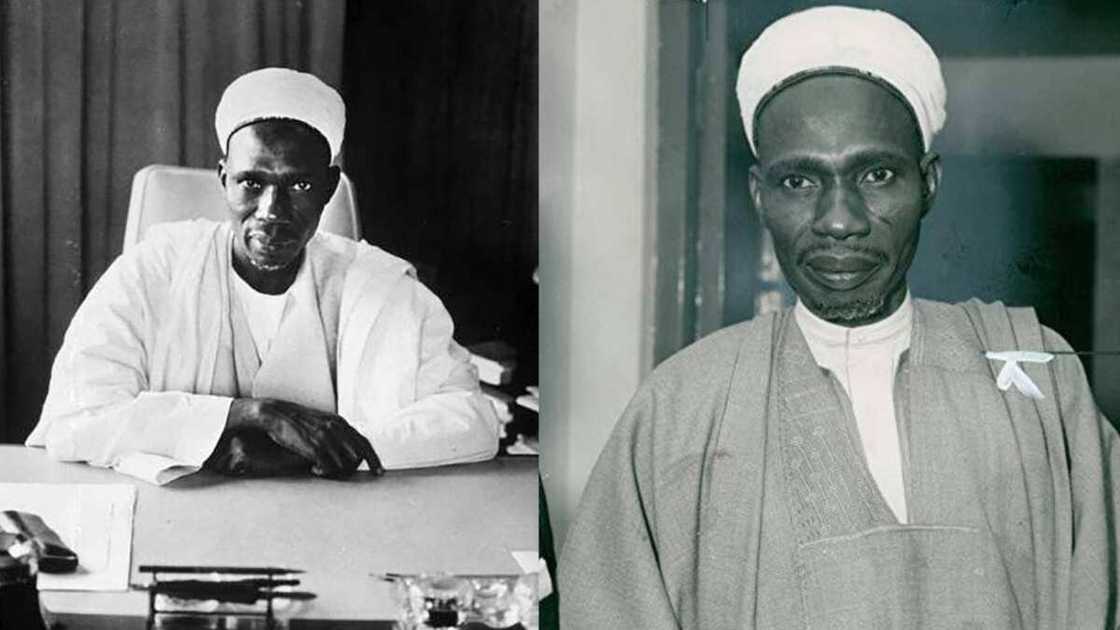
Source: UGC
- Born: December 1912
- Birthplace: Bauchi, Nigeria
- Date of death: 15 January 1966
- Age at death: 53 years
- Spouses: Hajiya Zainab, Hajiya Jummai, Hajiya Aisha, and Hajiya Laraba
- Career: Politician
Before joining politics, Abubakar Tafawa Balewa taught at Bauchi Middle School and was an Inspector of Schools for the colonial administration. He was elected to the Northern House of Assembly in 1946 and the Legislative Council in 1947.
Politician Abubakar Tafawa Balewa was a vocal advocate of the rights of Northern Nigeria. He became Nigeria's first and only Prime Minister upon independence and retained the position in 1963.
11. General Sani Abacha - A leader who strengthened Nigeria's economy
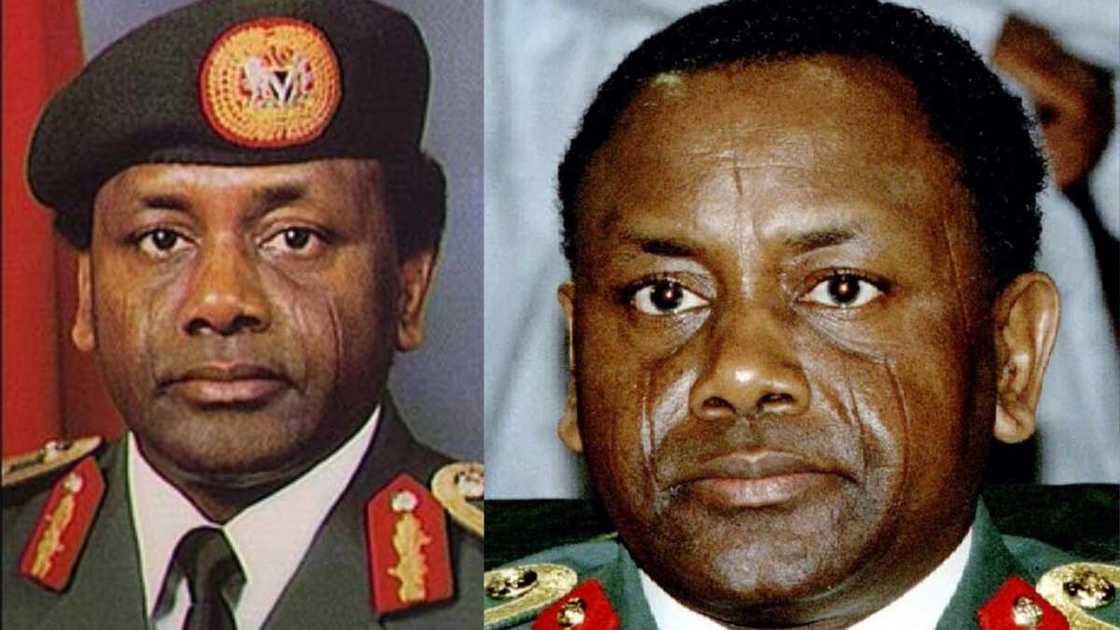
Source: UGC
- Born: 20 September 1943
- Birthplace: Kano, Northern Region, British Nigeria
- Date of death: 8 June 1998
- Age at death: 54 years
- Spouse: Maryam Abacha
- Career: Military leader and former Head of State
General Sani Abacha's administration increased Nigeria's foreign exchange reserves from $494 million in 1993 to $9.6 billion by 1997. He also reduced external debt from $36 billion to $27 billion during his tenure.
Sani died in the Aso Rock Presidential Villa in Abuja on 8 June 1998 in the State House. He was buried on the same day as per the Muslim tradition and without an autopsy. Foreign diplomats, including US Intelligence analysts, are believed to have poisoned him.
10. Hajiya Gambo Sawaba - A political trailblazer and women's advocate in Nigeria's struggle for independence
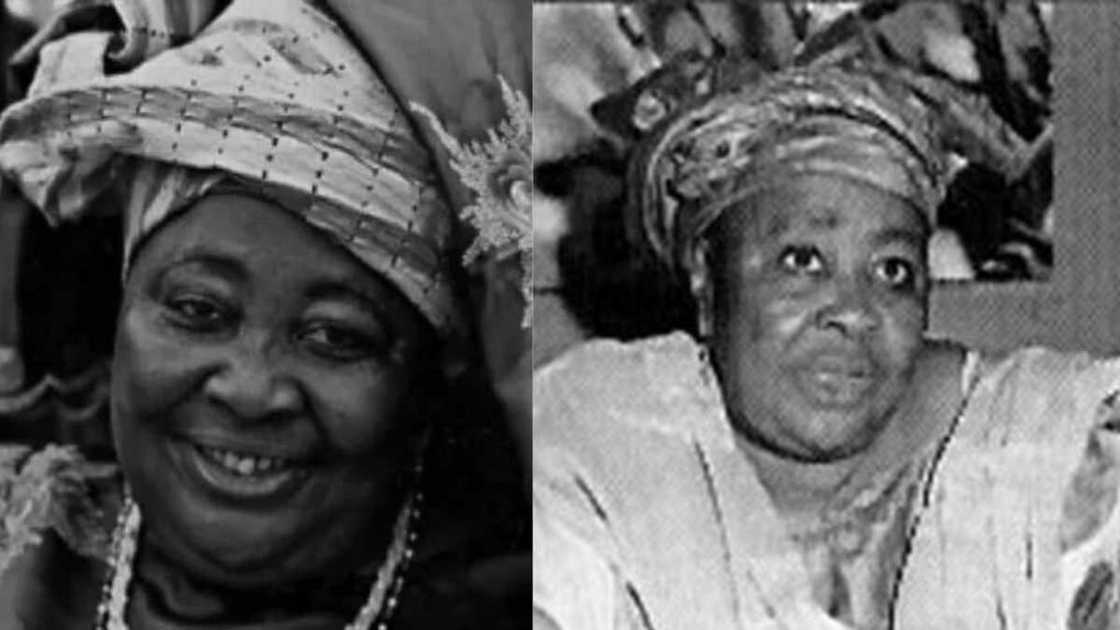
Source: UGC
- Born: 15 February 1933
- Birthplace: Nigeria
- Date of death: 14 October 2001
- Age at death: 68 years
- Spouse: Abubakar Garba Bello
- Career: Women's rights activist, politician and philanthropist
Hajiya Sawaba is among the 5 heroines in Nigeria. She was an influential political and public figure in Nigeria and an adherent of the Northern Elements Progressive Union. Hajiya Gambo Sawaba joined politics at only 17.
Gambo was an element of the political struggle that ultimately led to an independent Nigeria. She advocated against African customs like underage marriages that oppressed women. A general hospital in Kaduna and a hostel at Bayero University in Kano are named after her.
9. Chief Olusegun Obasanjo - A hero for Pan-African unity, democracy, and anti-corruption efforts
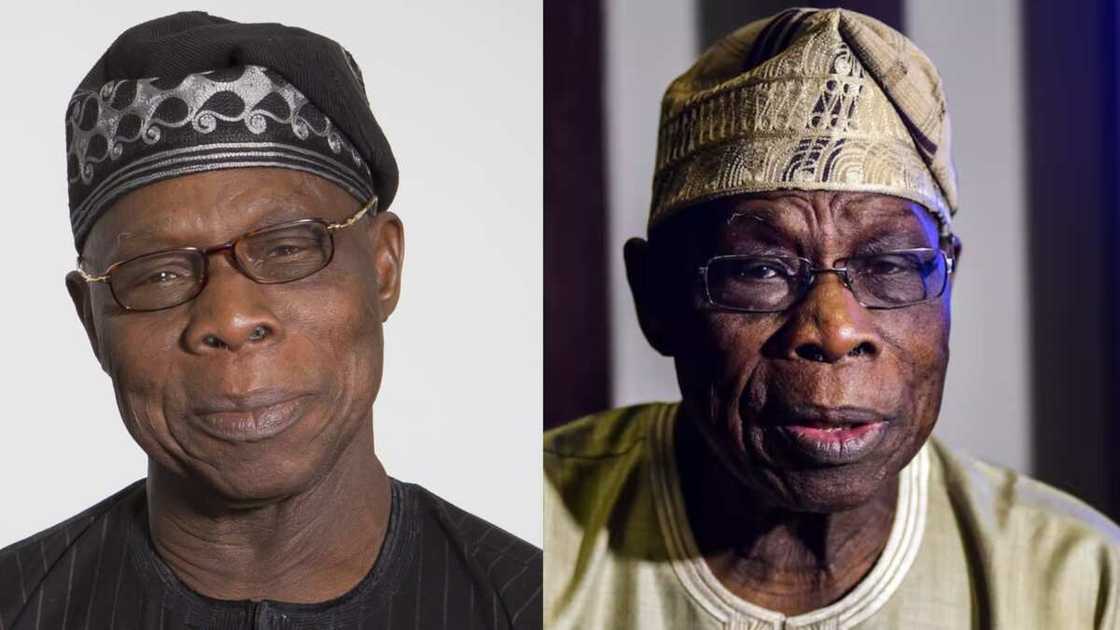
Source: UGC
- Born: 5 March 1938
- Birthplace: Ibogun-Olaogun, Ifo, British Nigeria
- Age: 86 years as of 2025
- Spouses: Esther Oluremi, Lynda, Stella Abebe, Mojisola Adekunle, and Bola Alice
- Career: Politician
Chief Olusegun Matthew Okikiola Ogunboye Aremu Obasanjo is one of the great figures of the second generation of post-colonial African leaders. He is often listed as one of the 10 heroes in Nigeria.
His Pan-African efforts enabled Nigeria to transition to representative democracy in the 1970s and encouraged it to cooperate with other African countries.
The politician was the Federal Minister of Defense (1976–1979) and the country's Head of State (1999–2007). Olusegun Obasanjo sought to alleviate poverty, reduce government corruption, and establish a democratic system.
8. Chief Anthony Enahoro - Celebrated for his advocacy for democracy, anti-colonialism, and Nigeria's independence movement
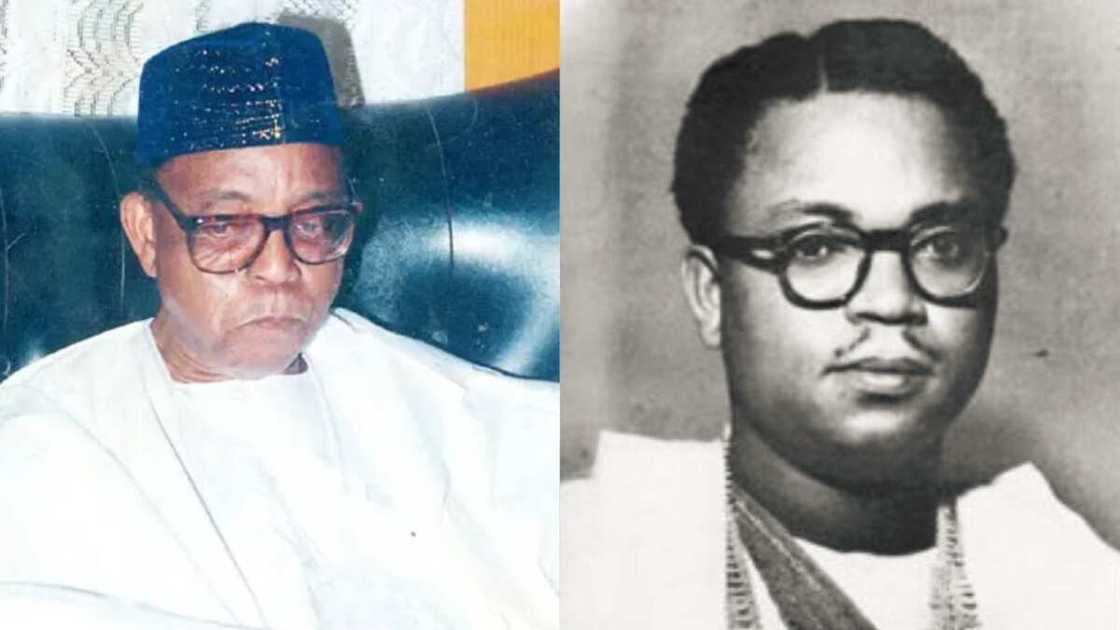
Source: UGC
- Born: 22 July 1923
- Birthplace: Uromi, Nigeria
- Date of birth: 15 December 2010
- Age at death: 87 years
- Spouse: Helen Enahoro
- Career: Anti-colonial and pro-democracy activist
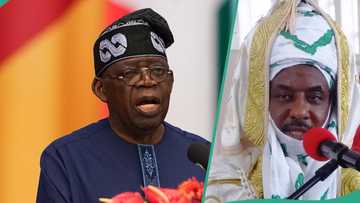
Read also
FG reacts as Emir Sanusi says he doesn't want to help Tinubu’s govt, "deeply disappointing"
Chief Anthony Eromosele Enahoro is one of Nigeria's past heroes. He was an active supporter of democracy and anti-colonialism. Did you know he was the youngest editor of the newspaper ‘Southern Nigerian Defender’ in 1944 at only 21?
He was a student leader who organised objections. As a result, the colonial authorities imprisoned him twice for insurrection and for publishing satirical papers. He was the first Nigerian to orchestrate the movement for independence in Nigeria in 1953.
7. Margaret Ekpo - A pioneer of women's rights and political leadership in Nigeria
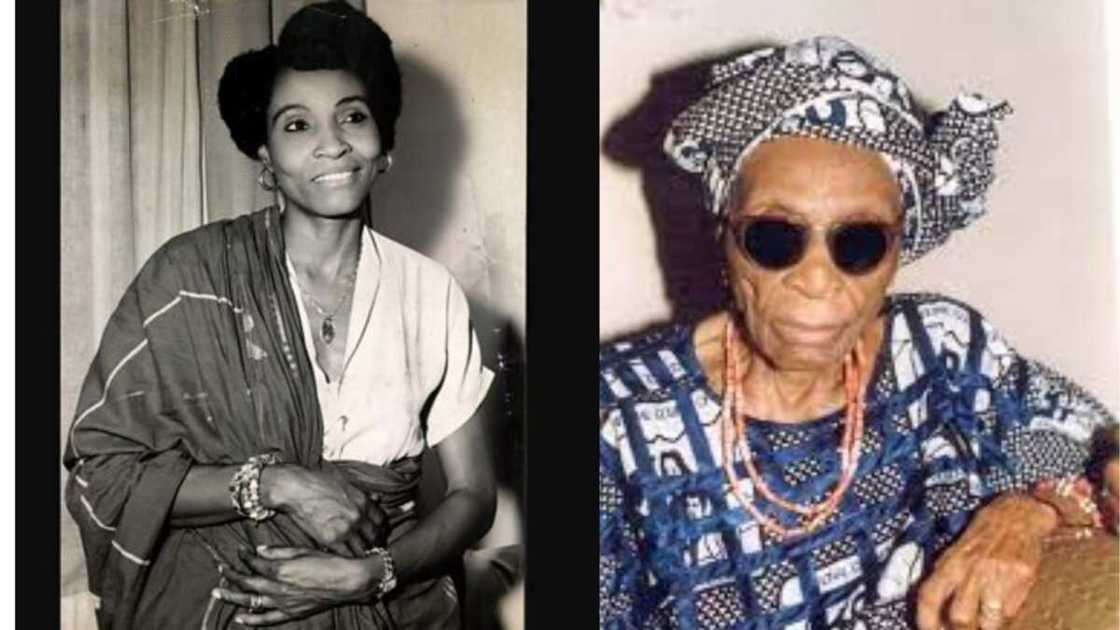
Source: UGC
- Born: 27 July 1914
- Birthplace: Creek Town, Nigeria
- Date of death: 21 September 2006
- Age at death: 92 years
- Spouse: Udo John Ekpo
- Career: Women's rights activist and social mobiliser
Chief Margaret Ekpo is one of the main 5 heroines in Nigeria. She was among the first female political figures in the country's first republic. She fought for women’s rights in Nigeria and was a local and nationalistic political figure in Aba City.
Ekpo was nominated by the NCNC to the regional House of Chiefs in 1953. She organised the Aba Township Women’s Association in 1954.
As a result, the number of women's votes exceeded the number of men’s votes in a general city election in 1955. Chief Margaret Ekpo won the seat in the Eastern Regional House of Assembly in 1961.
6. Chief Obafemi Awolowo - A key leader in Nigeria's Independence and a strong opponent of military rule
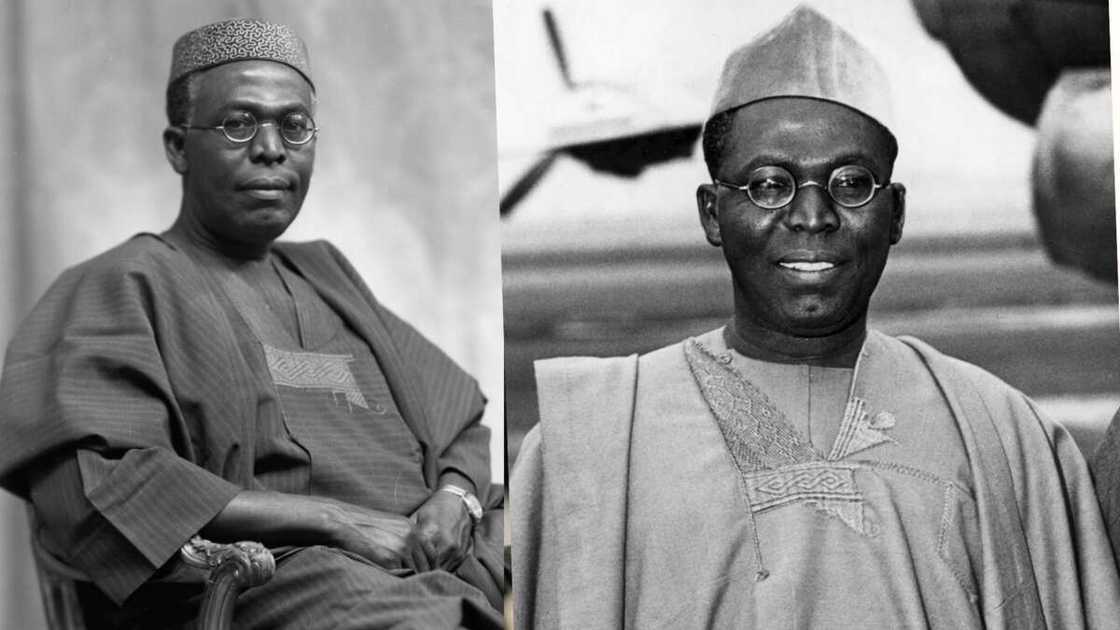
Source: UGC
- Born: 6 March 1909
- Birthplace: Ikenne, Southern Nigeria Protectorate
- Date of death: 9 May 1987
- Age at death: 78 years
- Spouse: Chief Hannah Idowu Dideolu Awolowo (née Adelana)
- Career: Politician and nationalist
Chief Obafemi Jeremiah Oyeniyi Awolowo was one of the leaders who fought for Nigeria's independence. He is considered among the 10 heroes in Nigeria. In 1950, he organised the Action Group political party to spearhead the end of British domination in Nigeria.
Chief Awolowo was the first premier of the Western Region. He refused the position of Finance Commissioner and vice chairperson of the Federal Executive Council in 1971 to oppose military rule.
5. Kudirat Abiola - A heroine of Nigeria's democracy movement and advocate for freedom
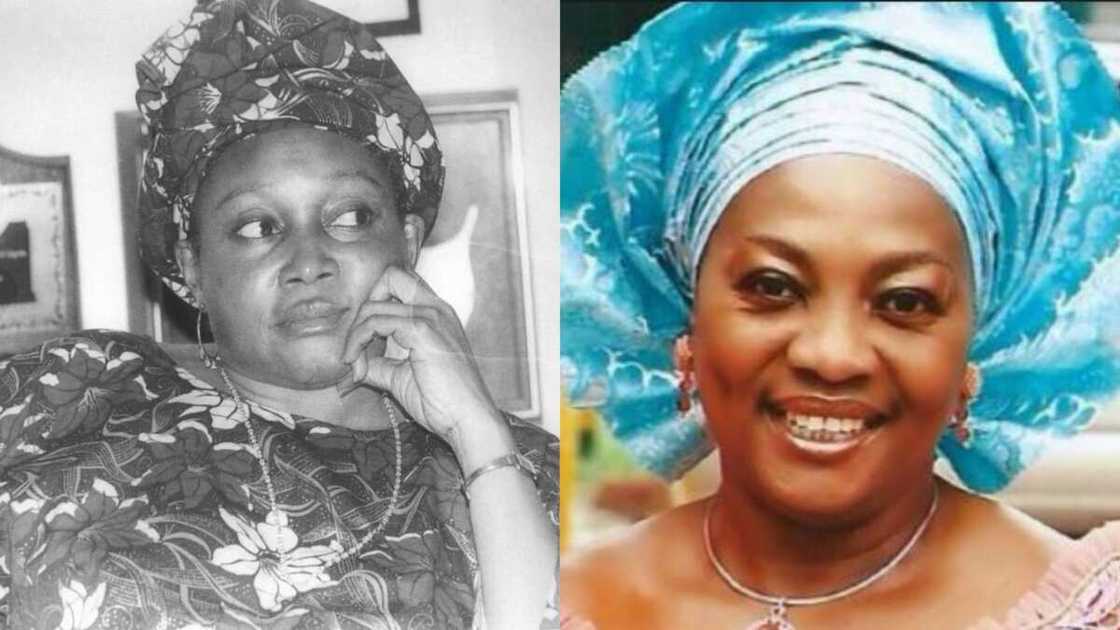
Source: UGC
- Born: 1951
- Birthplace: Zaria, Nigeria
- Date of death: 4 June 1996
- Age at death: 44/45 years
- Spouse: Moshood Abiola
- Career: Pro-democracy campaigner

Read also
Timileyin: Amnesty Int'l sends message to authorities as 'gospel singer' allegedly kills NYSC member
A pioneer and one of the top 10 heroines in Nigeria, Alhaja Kudirat Abiola is celebrated for advocacy for freedom. She actively participated in the movement for democracy in 1994.
She supported the oil employees during a successful 12-week strike that weakened the military government. In 1995, Kudirat Abiola took part in the procession for freedom organised by democratic institutions and supporters of Chief Anthony Enahoro.
She was named Woman of the Year two years in a row (1994 and 1995).
4. Ahmadu Bello - A champion of Nigeria's independence with a lasting legacy
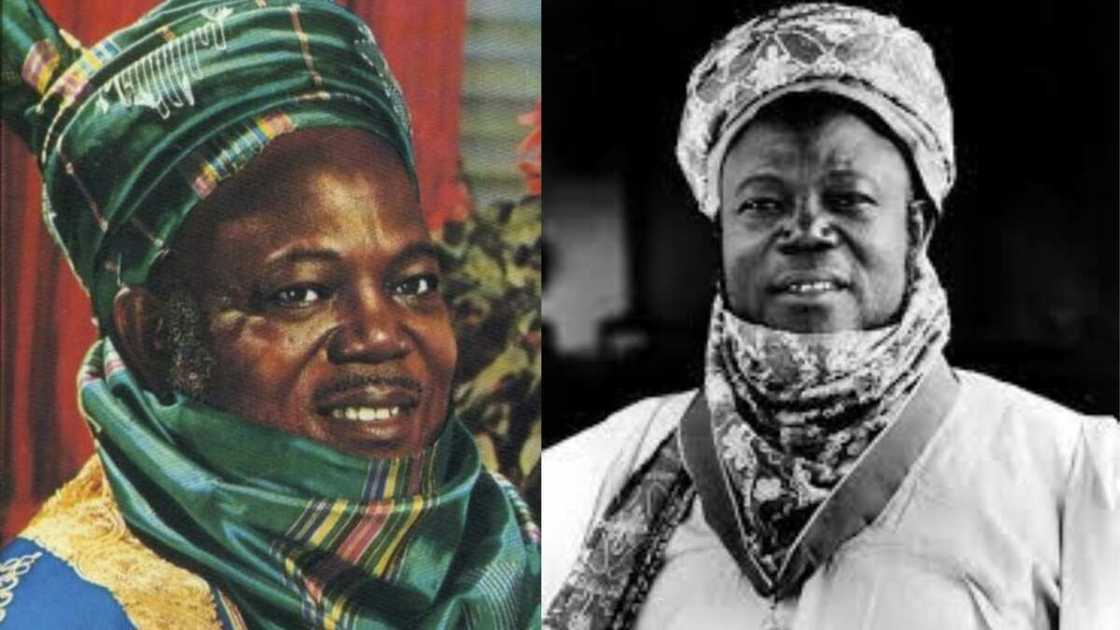
Source: UGC
- Born: 12 June 1910
- Birthplace: Rabbah, Sokoto, British Nigeria
- Date of death: 15 January 1966
- Age at death: 55 years
- Spouses: Amiru Fadima (1936–1938), Hafsatu Ahmadu Bello (1932–1966)
- Career: Politician
There is no list of names of past heroes in Nigeria that does not include Sir Ahmadu Ibrahim Bello. He engaged in political activities for over 30 years and was the premier in the Northern Nigeria region for around two decades.
He and Abubakar Tafawa Balewa played significant roles in the fight for Nigeria's independence. Sir Ahmadu Bello was killed on 15 January 1966 during the coup d'état organized by Major Chukwuma Kaduna Nzeogwu. Ahmadu Bello University was named after him, and his portrait is on the 200 Naira banknote.
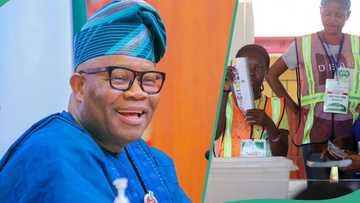
Read also
Elections in Nigeria: Akpabio speaks on urgency of completing electoral reforms, gives reason
3. Herbert Macaulay - Pioneer of Nigerian nationalism and founder of key political movements
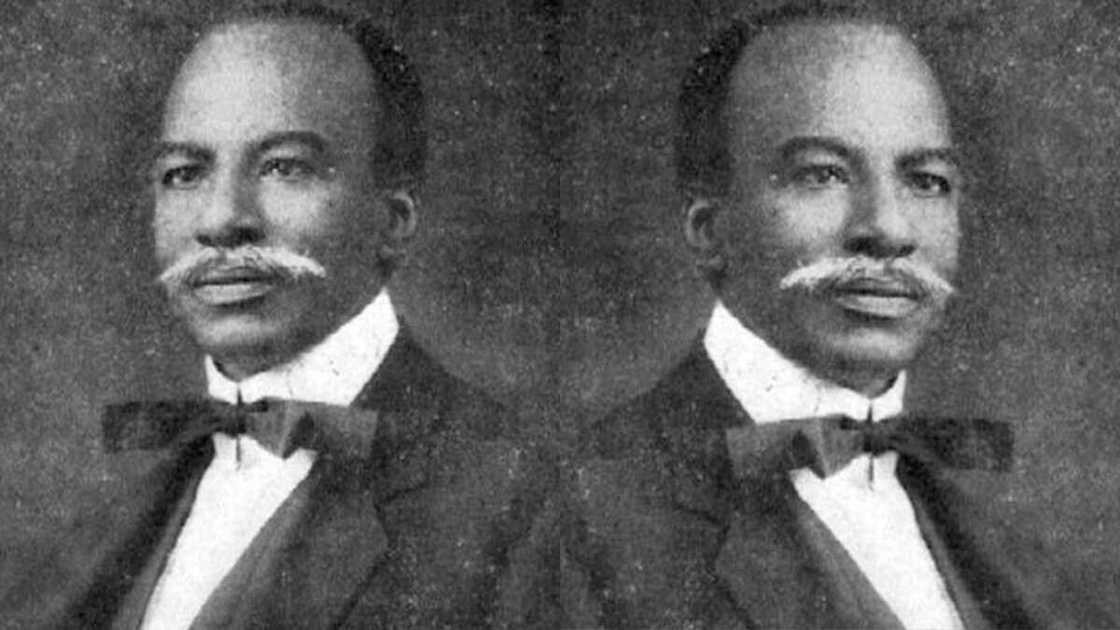
Source: UGC
- Born: 14 November 1864
- Birthplace: Lagos Colony
- Died: 7 May 1946 in Lagos, Nigeria
- Age: 81 years (at the time of death)
- Spouse: Caroline Pratt (1898–1899)
- Career: Nationalist, politician, surveyor, engineer, architect, journalist, and musician
If you ever wondered what is the importance of heroes and heroines, meet the man who is an embodiment of the values of heroism.
Olayinka Herbert Samuel Heelas Badmus Macaulay initiated Nigerian nationalism to unite people from all origins. He established the Lagos Daily News to spread nationalism.
Nnamdi Azikiwe and Herbert Macaulay created the National Democratic Party of Nigeria political party in 1922. He was the premier national president of the Nigerian and Cameroon National Council in 1944. Macaulay died in 1946 and was buried at Ikoyi Cemetery, Lagos, Nigeria.
2. Funmilayo Ransome Kuti - A heroine for women's empowerment, human rights, and revolutionary leadership
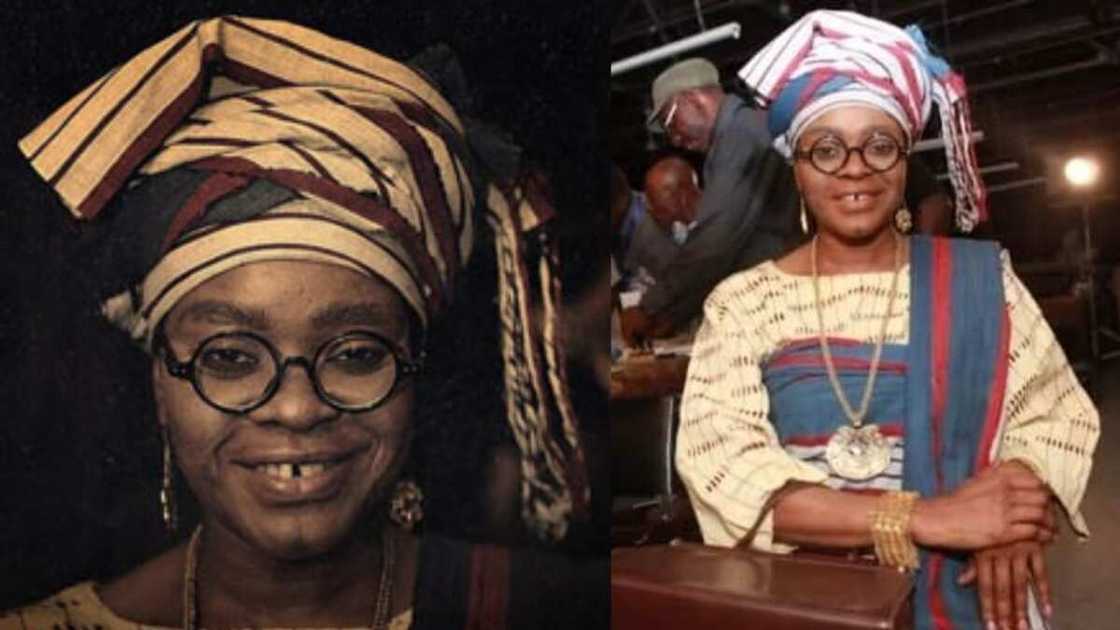
Source: UGC
- Born: 25 October 1900
- Birthplace: Abeokuta, Nigeria
- Date of death: 13 April 1978
- Age at death: 77 years
- Spouse: Israel Oludotun Ransome-Kuti
- Career: Educator and political activist
Chief Funmilayo Ransome Kuti is one of the top 10 heroines in Nigeria. She was one of Nigeria's premier female leaders and feminists. She was known as ‘The Mother of Africa’ because of her human rights activism.
Kuti defended women's rights and condemned the military government for human rights violations. She was elected to the Western House of Chiefs and acted as an Oloye of the Yoruba nation.
Kuti had membership in the National Council of Nigeria and Cameroon and was the first Nigerian female to ride a motorcycle and drive a car. She was among the founders of the Nigeria Union of Teachers and the Nigerian Students Union.
1. Dr. Nnamdi Azikiwe - Champion of African nationalism and Nigeria's first President
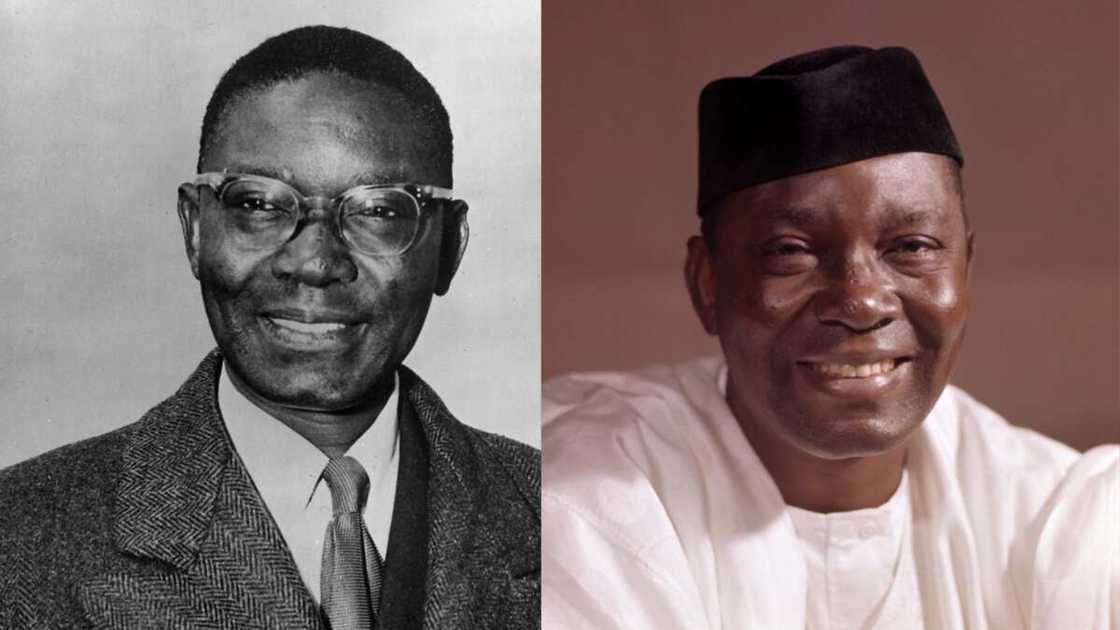
Source: UGC
- Born: 16 November 1904
- Birthplace: Zungeru, Nigeria
- Date of death: 11 May 1996
- Age at death: 91 years
- Spouses: Uche Azikiwe, Flora Azikiwe, Ugoye Comfort Azikiwe
- Career: Politician and revolutionist
When people are asked to list 10 achievements of heroes and heroines in Nigeria, fighting for freedom from colonialists is top of the list. Dr. Benjamin Nnamdi Azikiwe was Nigeria's first president after independence from Great Britain.
Azikiwe spread African nationalist ideas while working as the editor of a Ghanaian newspaper. He returned to Nigeria and organised the West African Pilot in 1937 to promote nationalism in Nigeria.
In 1946, Dr. Nnamdi Azikiwe was appointed secretary-general in the National Council and elected to the Nigerian Legislative Council. After Nigeria was proclaimed a republic in 1963, he became the first Nigerian president.
Key leaders in Nigeria's economic growth and stability
According to Dr. Thompson, the key leaders in Nigeria's post-independence era who played a crucial role in the country's economic growth and stability are Olusegun Obasanjo and the late Musa Yar'adua. He explained that:
The first is Chief Olusegun Obasanjo (1999-2007). Apart from the ability to select some of the best ‘11’ or cabinet members, the National Economic Empowerment and Development Strategy (NEEDS) which was replicated at the state and local levels were some of the best economic policies of the last 60 years.
His ability to also get the debts canceled, repatriation of foreign lots which many now call Abacha loot, and the ability to bring in investors were marvellous. One must however note that these were no mean feat as it was as a result of the trust reposed on him by the international community.
The other and final leader so far was the late Musa Yar'adua who in spite of his short stay in office and on earth, reduced the tension in the Niger-Delta. Today, aside from the challenges of oil theft and pollution, there have been relative peace to the ‘goose’ that lay Nigeria’s golden eggs.
Though saddled with some corrupt practices, the billions of dollars/Naira funnelled to the region has to a large extent stabilised the region. While Chief Obasanjo’s actions succeeded because of the crop of experts and his ingenuity, that of Yar'adua was basically based on political will.
He further explains that aside from the forefathers and these two in recent times who have genuinely made serious attempts to develop the country; others have failed to live up to expectations and most of their fancy rhetoric is just cosmetic or ‘liposuctions’ in nature.
A list of five achievements of heroes and heroines in Nigeria
Although these legends might have championed different issues, they all culminated to advance the social, political and economic landscape of Nigeria. Here are the key achievements of heroes and heroines in Nigeria.
- Fought for Nigeria's independence and nationalism.
- Resisted military rule and fought for democracy in Nigeria.
- Advanced women's rights and participation in democracy.
- Defended human rights and advocated for the oppressed.
- Strengthened Nigeria's economy.
Past leaders who contributed to Nigeria's growth
Olasupo Thompson, a history and political science lecturer at the Federal University of Agriculture, Abeokuta (FUNAAB), shared with Legit.ng in an interview some accomplishments of past leaders in Nigeria that had a lasting impact on the country's growth. He mentioned:
Pre-independence era
- Obafemi Awolowo - Free education and building of ranches.
- Nnamdi Azikiwe: Introduction of reforms and initiatives in areas such as industrialisation and education; for instance, Dr. Thompson said, "While the Yoruba were at a time ahead of the Igbos and other regions educationally, Azikiwe through proactiveness, astuteness, and ingenuity turned the tide around".
- Ahmadu Bello.
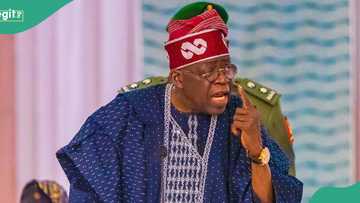
Read also
Hardship: Tinubu sends fresh message to Nigerians as he releases video, "we have to move forward"
Post-independence era
- General Yakubu Gowon - National Accelerated Food Production Programme and the Nigerian Agricultural and Cooperative Bank (NACB) in 1972.
- General Murtala Rufai Mohammed - Public Service Purge.
- General Olusegun Obasanjo - Operation Feed the Nation of 1976 and the Agricultural Credit Guarantee Scheme (ACGS) of 1977.
- Alhaji Umaru Musa Yar'adua - Niger-Delta Amnesty Programme and the 7-point Agenda.
- Goodluck Jonathan's 2015 general election call to the eventual winner.
- Rtd General Muhammadu Buhari - Economic Recovery and Growth Plan (ERGP).
Who fought for Nigeria's independence?
The contributions of heroes and heroines in Nigeria are highly appreciated. They relentlessly fought for people's rights during and after the colonial era. Some of Nigeria's past heroes are:
- Ahmadu Bello
- Funmilayo Ransome Kuti
- Dr. Nnamdi Azikiwe
- Kudirat Abiola
- Chief Anthony Enahoro
- Margaret Ekpo
- Chief Obafemi Awolowo
- Herbert Macaulay
- Hajiya Gambo Sawaba
- Gen. Murtala Ramat Mohammed
- General Matthew Obasanjo
- Shehu Usman Aliyu Shagari
- Sir Abubakar Tafawa Balewa
- General Sani Abacha
- General Yakubu Dan-Yumma Gowon
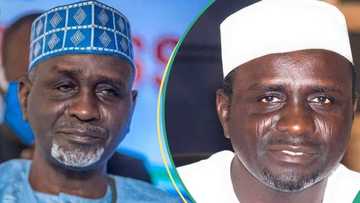
Read also
2027: Ex-Kano gov Shekarau leading northern elite, 2 top former heads of state named as supporters
Who is an early hero in Nigeria?
Ahmadu Ibrahim Bello (12 June 1910 – 15 January 1966) was a conservative Nigerian statesman. He was the Sardauna of Sokoto. Sir Ahmadu Bello led Northern Nigeria to independence in 1960. He served as the country's first and only premier from 1954 until his assassination in 1966.
Who fought for Nigeria?
History scholars and many Nigerians regard Chief Anthony Enahoro as the "Father of Nigeria State." In 1953, he became the first Nigerian politician to move the motion for the country's independence. Nigeria eventually became independent in 1960 after several political setbacks and defeats in the parliament.
Who are the heroes in Lagos State?
Lagos State has many fallen heroes and heroines. Most paid the highest price for Nigeria, its government, and the people of Lagos State. Some heroes in Lagos State are:
- Professor Ayodele Awojobi - In October 2009, Babatunde Fashola dedicated a garden to honor the late Ayodele at Onike Roundabout, Yaba, Lagos. A statue of the famous academic was erected at the centre of the garden.
- Chief Gani Fawehinmi - Lagos State Governor Babatunde Fashola unveiled a statue of the legal icon and dedicated a memorial garden for him as tokens of appreciation for his leadership and service to humanity.
- Chief Tunji Braithwaite - He was a lawyer, political activist, and founder Nigerian Advance Party (NAP). NAP was composed mainly of southern Nigerian intellectuals favoring a reformist government. The party was not registered alongside the five parties that contested the 1979 general elections.
- Dr. Nurudeen Olowopopo - He was the chairman of Lagos State University Teaching Hospital until his death. A major road in Alausa was named after him. Nurudeen was among Eko Club International's founders. He organized periodic Medical Missions to Lagos and participated in the establishment of the Association of Nigerian Physicians in America (ANPA).
- Footballer Sam Okwaraji - He died at the National Stadium, Surulere, Lagos. Lagos State Governor Fashola's administration built a memorial garden for the patriot. It was named the Rededicated Memorial Garden.
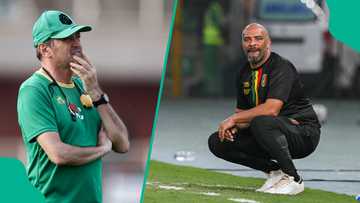
Read also
Portuguese tactician speaks out after NFF appoints Chelle instead of him as Super Eagles coach
Top 10 heroines in Nigeria and their names
Nigerian women have always been at the forefront of the fight for the country's independence and betterment. Their contributions have greatly improved and impacted the nation. Some of the female heroes in Nigeria are:
- Dora Akunyili
- Florence Nwapa
- Ngozi Okonjo-Iweala
- Agbani Darego
- Chioma Ajunwa
- Funmilayo Ransome Kuti
- Kudirat Abiola
- Margaret Ekpo
- Hajiya Gambo Sawaba
On women's participation and empowerment in the country, Dr. Thompson said past leaders from 1999 made efforts to promote gender equality and representation. He emphasised:
For example, I think former President Goodluck Jonathan remain the champion on women representation with about 31 percent in this regard as he not only gave women powerful positions but also gave them freewill.
The National Assembly which is male dominated has not helped matters. So I will not entirely blame the executive. To be sure, when former Senator Abiodun Olujimi of Ekiti pushed for a bill on gender mainstreaming and equality, it was fervidly rejected by the 9th senate because most of the members (mostly of northern extract) felt it was anti-Islam. Thus, religion has become a spanner to women emancipation and equality.
Dr. Thompson emphasises that a report by the Gender Strategy Advancement International (GSAI) revealed that the national average of women’s political participation in Nigeria has remained 6.7 percent in elective and appointive positions, which is far below the Global Average of 22.5 percent, Africa Regional Average of 23.4 percent and West African Sub Regional Average of 15 percent.
As for women empowerment, just like representation; our ruling elite are not serious about empowering the women. Schemes to empower women have now become jamboree for the ‘boys.’ Apart from lack of proper framework, planning and will; the ecological nature and the patriarchal nature of the State has not helped matters.
He adds that until a holistic and systemic intervention is thought out where the issue of religion, ethnicity and laws as well as industrialisation and inclusiveness are entrenched, then forget all these talks about women empowerment.
Who are the present heroines in Nigeria?
Present heroines in Nigeria are role models to women worldwide. These iron ladies inspire women through their talents, career achievements, activism, and philanthropic works. Three Nigerian female nationalists who are alive as of June 2023 are:
- Ngozi Okonjo-Iweala
- Agbani Darego
- Chioma Ajunwa
The contributions of Nigerian heroes and heroines led to independence, democracy, political and economic expansion, and more. The lives of some of these great individuals were the price of a bright future for Nigeria.
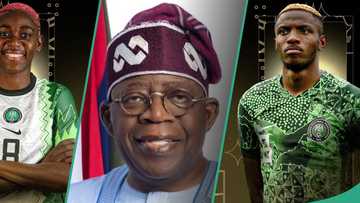
Read also
“Unprecedented”: Tinubu, Atiku, Obi congratulate Osimhen, Oshoala, Nnadozie for winning CAF Awards
Who is the national hero of Nigeria?
His Excellency The Right Honourable Nnamdi Azikiwe GCFR PC is the national hero of Nigeria. He is celebrated for his fight for the country's independence. He was the first President of Nigeria and advocated for nationalism and Pan-Africanism.
Heroes and heroines in Nigeria are evidence of the immense courage that it took to get the country to where it is right now. Some of these individuals pioneered democracy, and the rule of law and fought colonialism. Remembering these heroes and heroines reminds Nigerians that anything is possible through will, action and community.
Legit.ng shared a list of reasons for military intervention in Nigerian politics. Nigeria has experienced several military coups since it gained independence.
These military interventions in Nigerian politics have positively and negatively impacted the economy, the nation's cultural cohesiveness, and more.
Source: Legit.ng

Cyprine Apindi (Lifestyle writer) Cyprine Apindi is a content creator and educator with over six years of experience. She holds a Diploma in Mass Communication and a Bachelor’s degree in Nutrition and Dietetics from Kenyatta University. Cyprine joined Briefly.co.za in mid-2021, covering multiple topics, including finance, entertainment, sports, and lifestyle. In 2023, she finished the AFP course on Digital Investigation Techniques. She received the 2023 Writer of the Year Award. In 2024, she completed the Google News Initiative course. Email: cyprineapindi@gmail.com

Peris Walubengo (Lifestyle writer) Peris Walubengo has vast experience in search engine optimization through digital content generation, research, editing, and proofreading. She joined Legit.ng in April 2022 and completed the AFP course on Digital Investigation Techniques. You can email her at perisrodah254@gmail.com.


